Historically, Kentuckiana Pride sold $10 tickets as a formality, mostly just to raise funds for the event. They were available day-of, at the gate, accessible to both advance planners and impulsive visitors. In the 24 years since Kentuckiana Pride first began holding its event in Louisville, they certainly hadn’t ever needed to place a cap on ticket sales.
That was before the Summer of Chappell Roan.
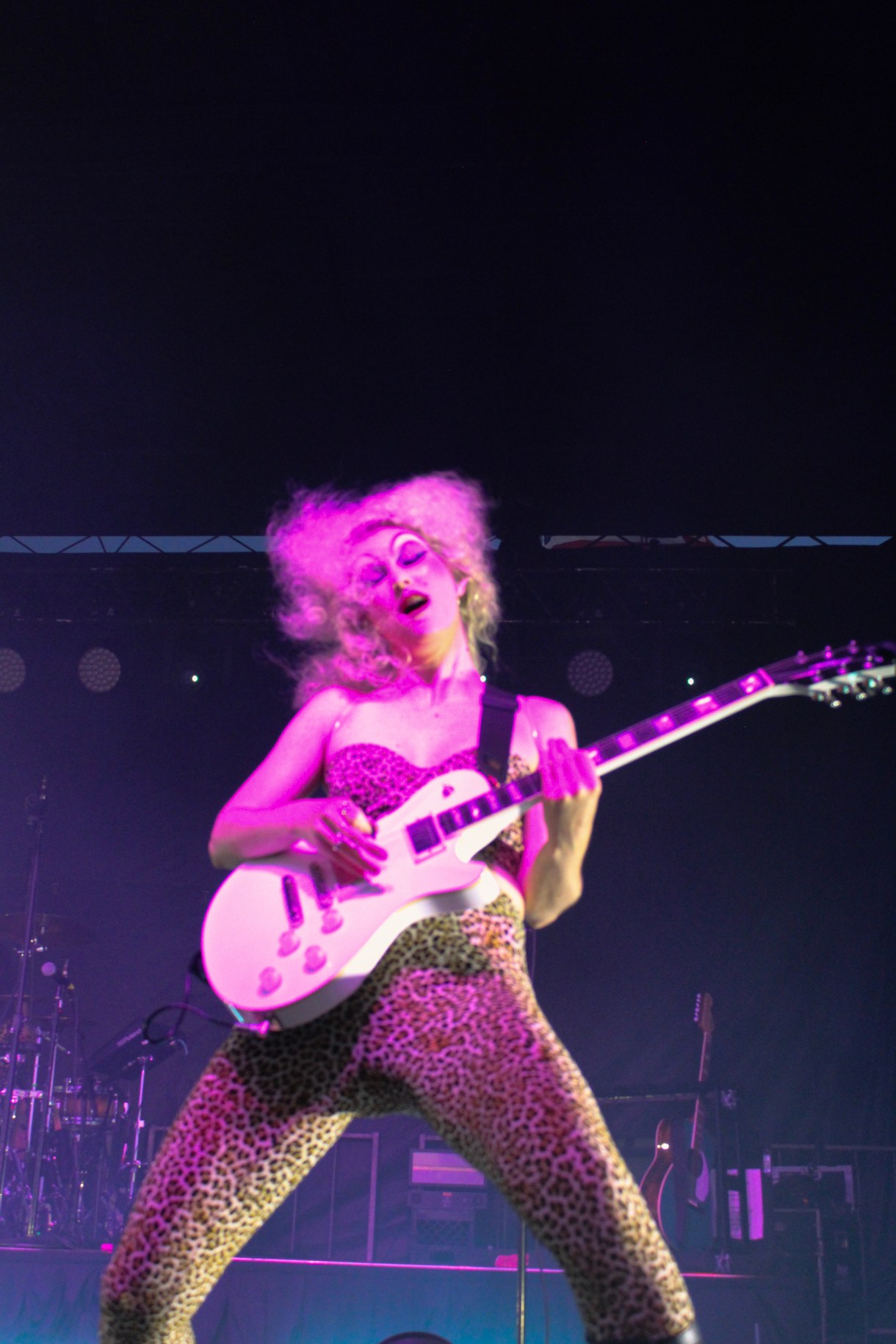
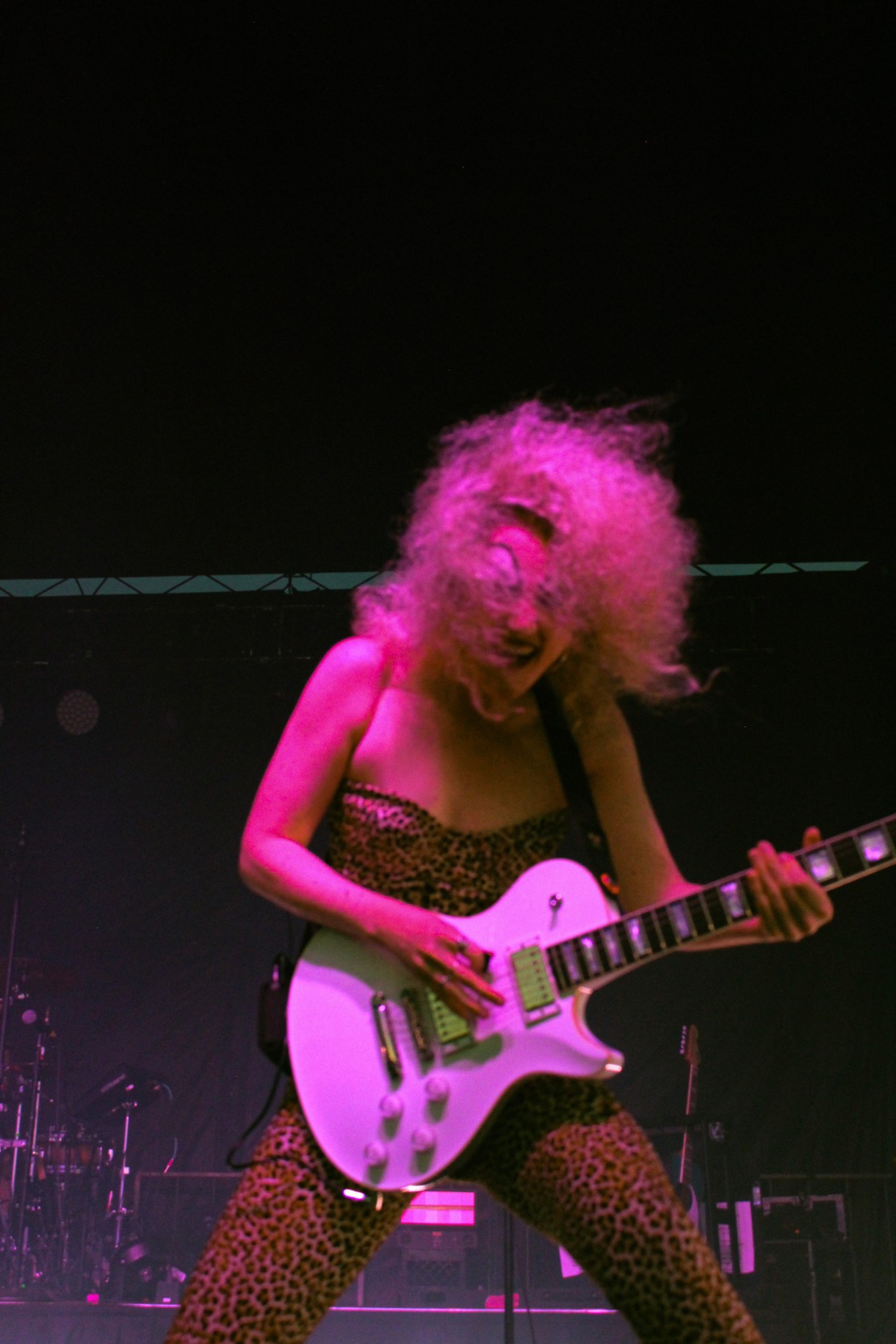
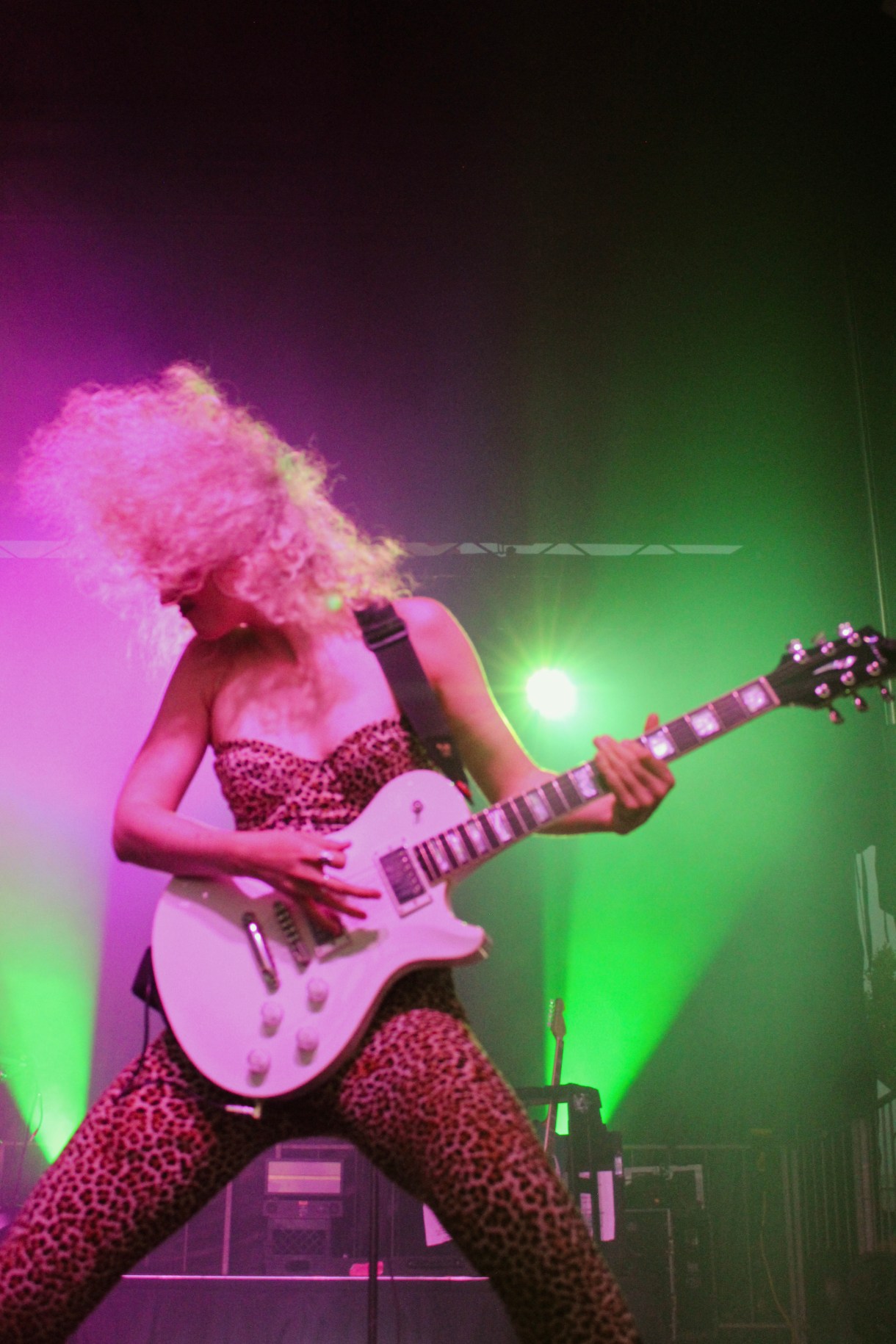
Kentuckiana Pride had originally booked Icona Pop to headline its festival, and Chappell was on the lineup along with other artists perceived to be less popular than Icona Pop. This was after the September 2023 release of Roan’s critically acclaimed debut full-length album The Rise and Fall of a Midwest Princess, but before Roan’s popularity exploded in the spring of 2024. As the Pride celebration neared, tickets were flying out the door at breakneck pace. Fans new and old alike knew the window in which one could catch a Chappell Roan concert for $10 was quickly closing. For the first time ever, the festival reached its capacity with 25,000 tickets sold.
Then, the day before the concert, Icona Pop bowed out of their headlining performance. It was official: Chappell Roan would headline an attendance-record-breaking Kentuckiana Pride, with indie pop band The Aces added as a last-minute opener. In addition to the scores of ticket holders, crowds flooded Louisville’s pedestrian bridge to experience the show from afar, creating their own ad hoc concert experience. What had long been a fun but modest Pride celebration in the heart of Louisville bloomed into a massive festival, all due to Chappell and the passionate fanbase that has emerged around her.
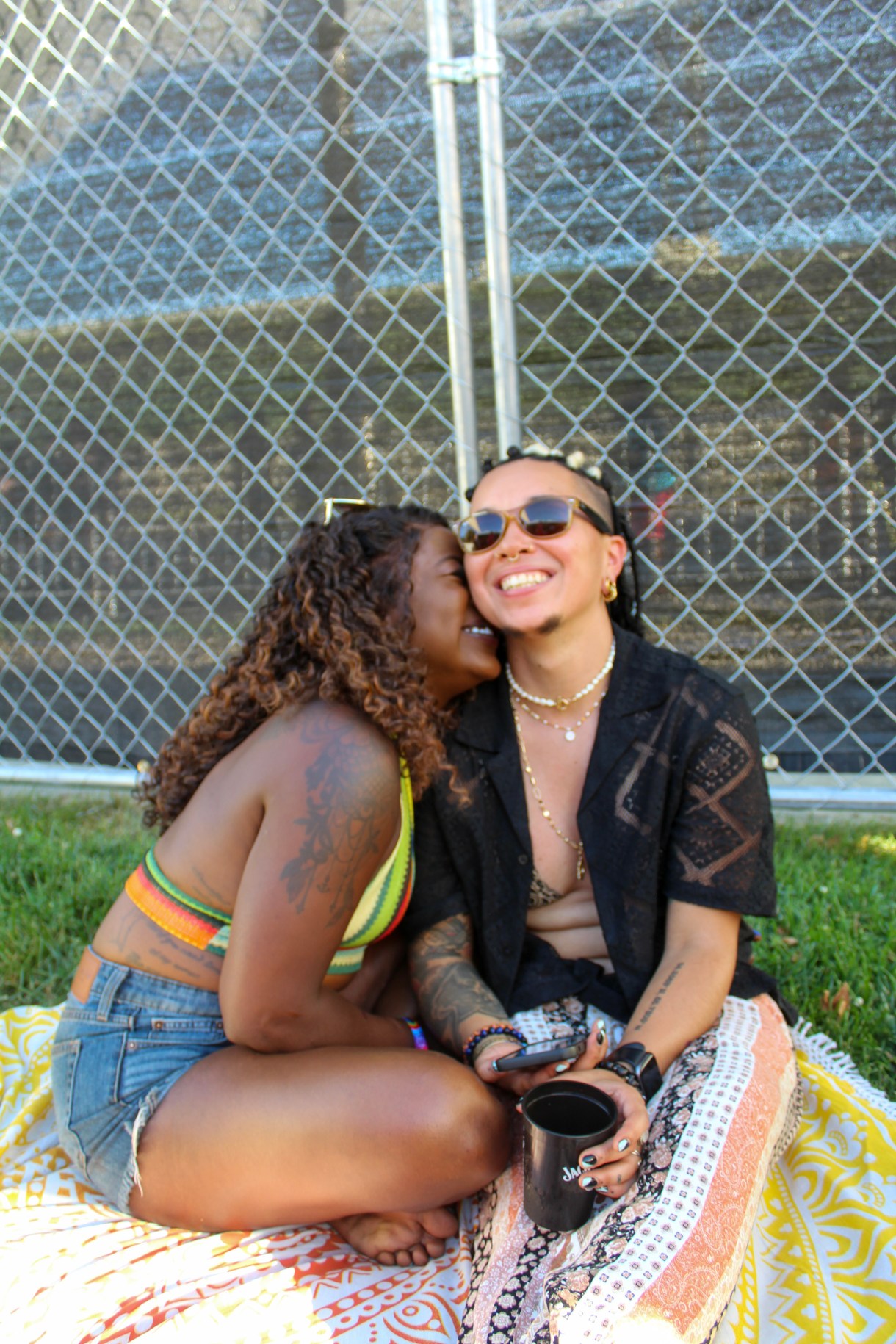
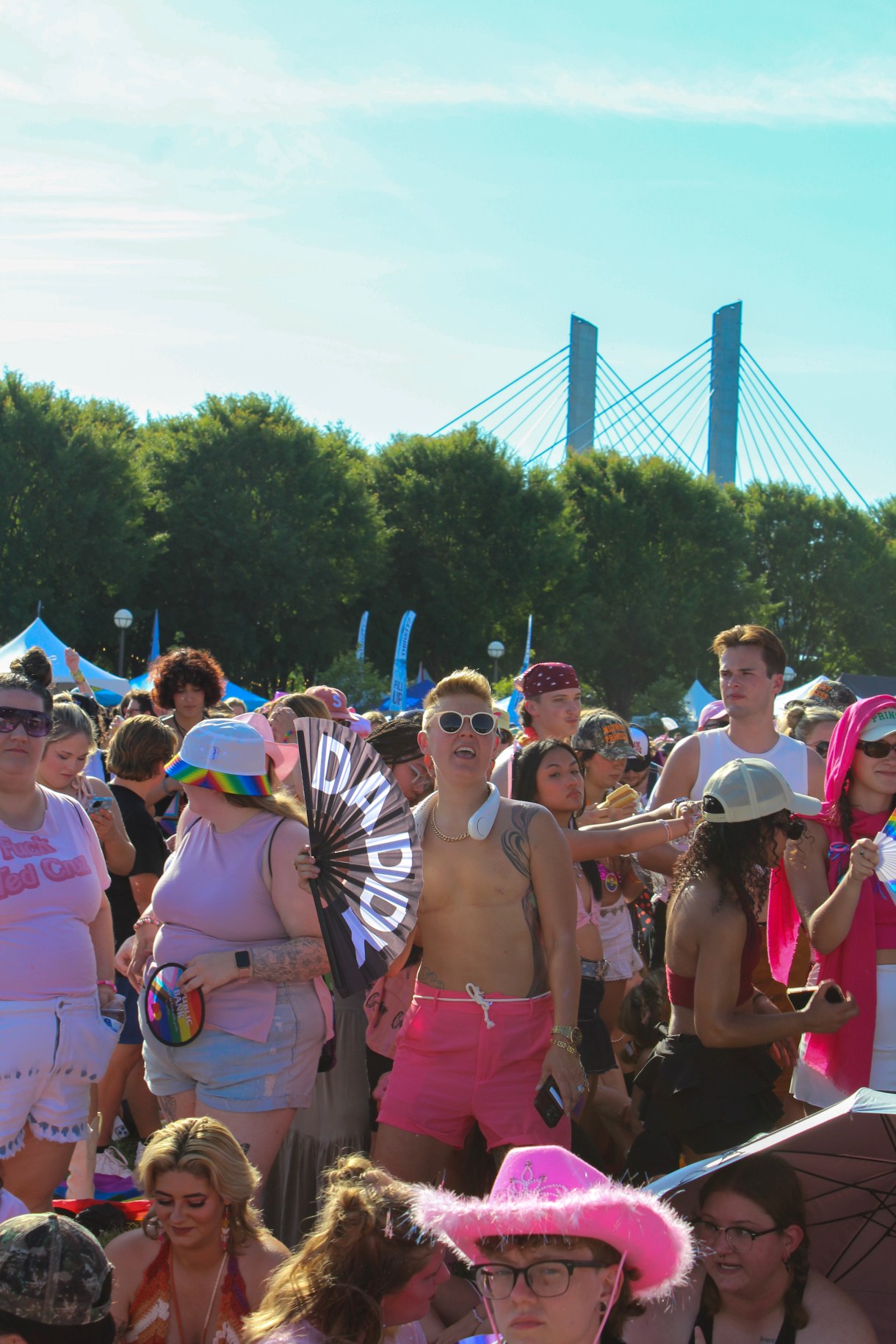
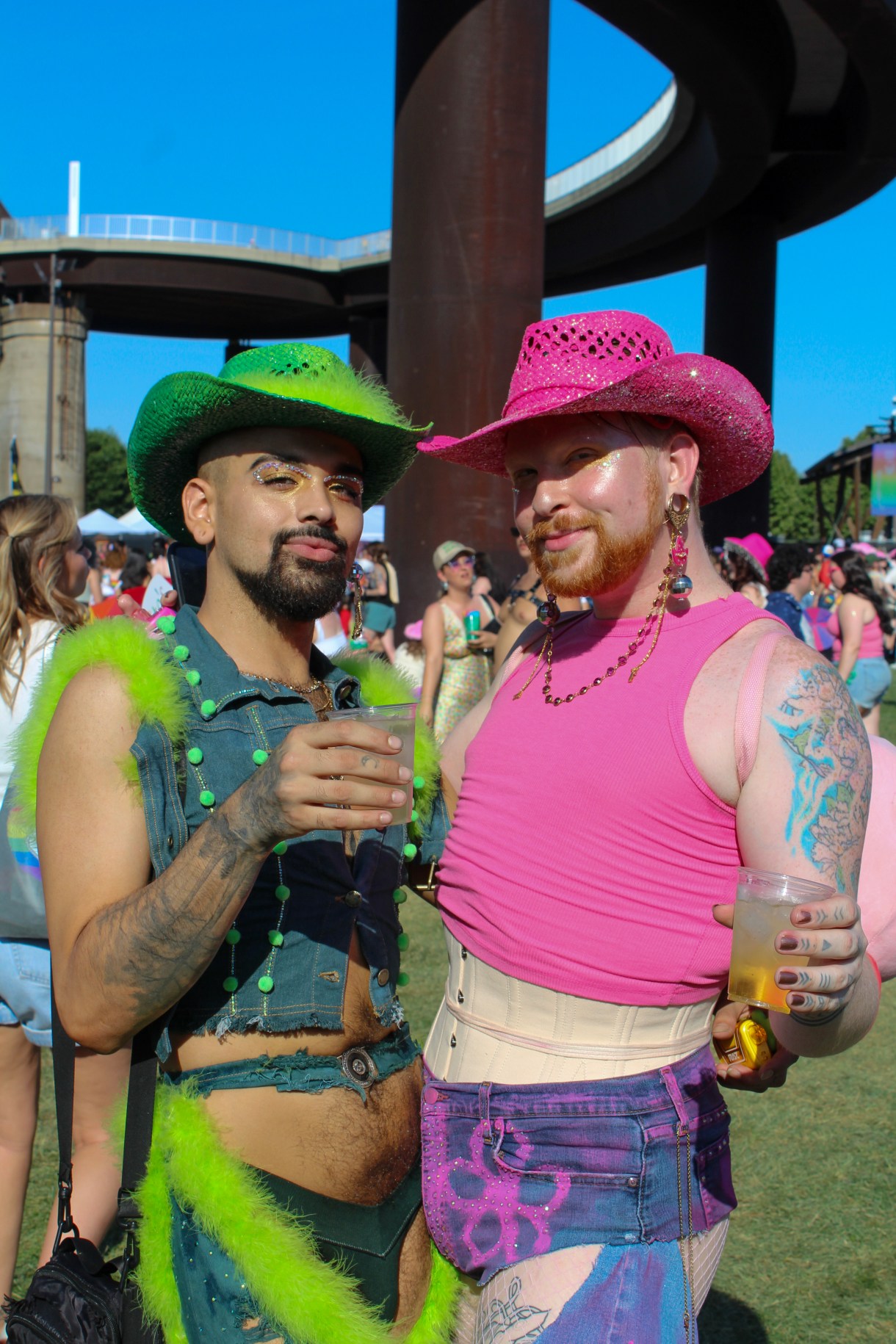
While Chappell had a dedicated core fanbase of queer listeners leading up to the release of The Rise and Fall of a Midwest Princess, her popularity exploded this spring due to more mainstream appearances at massive events like Coachella. Don’t call her an overnight success, though: True fans of Chappell know she’s been working hard for years, touring and creating immersive concert-going experiences. She might be performing in front of thousands of people now, but the fans I talked to who were lucky enough to catch her earlier shows, attended by crowds of just a couple hundred people, say those experiences were just as magical.
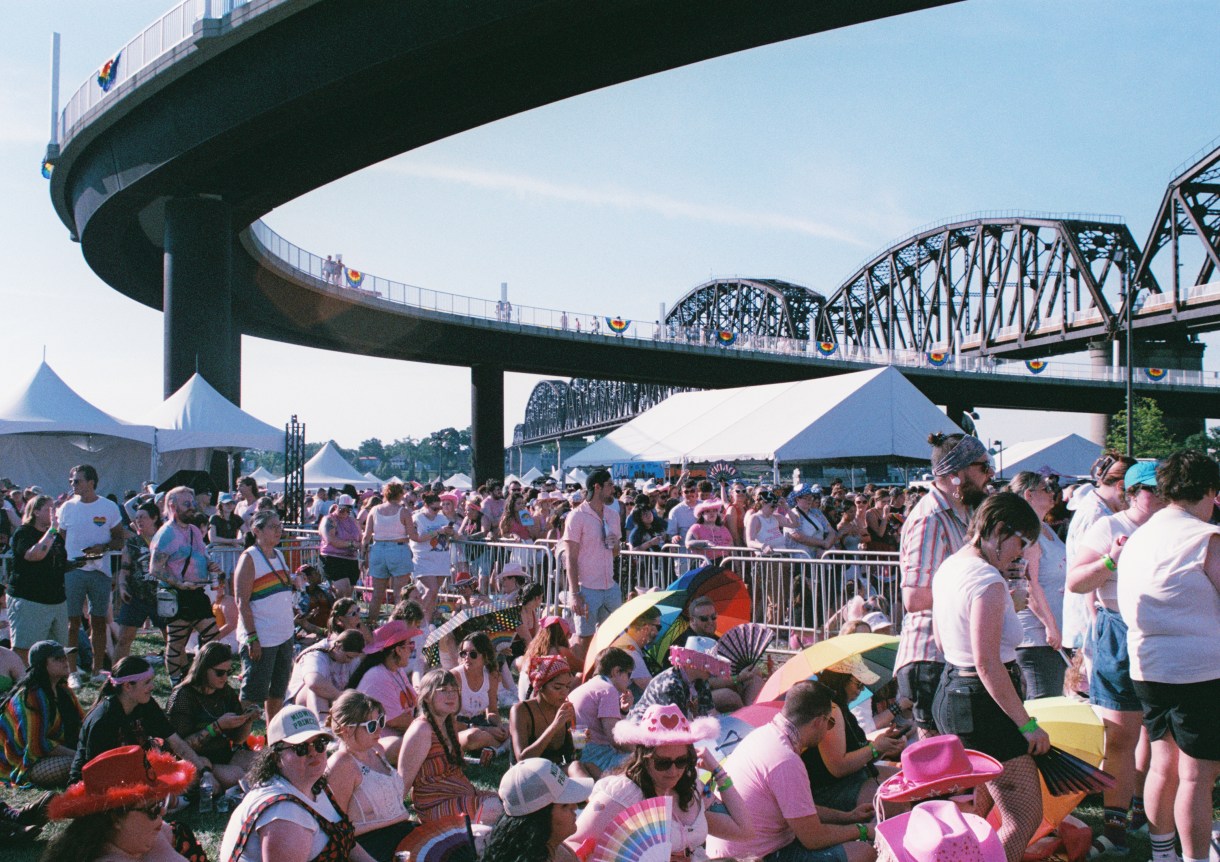
After releasing an original song on YouTube under her birth name in 2014, Chappell Roan signed with music label Atlantic Records in 2015, which is also when she adopted her stage name, a tribute to her late grandfather Dennis K. Chappell whose favorite song was “The Strawberry Roan” by Curley Fletcher. In 2017, she released her first official single “Good Hurt,” soon followed by her five-track EP School Nights. During this point of her career, she still lived with her parents in Missouri. But in 2018, she moved to Los Angeles and started working with new producers and songwriters to take her career to the next level.
Roan’s first breakout single was 2020’s “Pink Pony Club.” In it, Chappell Roan sings of having wicked dreams of leaving Tennessee, of having visions of a special place in LA where boys and girls can all be queens every single day. (Is it stuck in your head yet?) The Pink Pony Club is an imagined queer club in Santa Monica, where the narrator of the song longs to be, eventually leaving her home in Tennessee — much to the chagrin of her disapproving mother — to dance and perform there.
The music video for the single is set at a Tennessee honky tonk where a sparse and seemingly straight crowd of mostly biker dudes assess Chappell as she takes the stage in a bedazzled cowboy hat, sparkly one-piece, and cropped Western jacket. Even though the crowd doesn’t seem receptive to her raunchy queer performance, she doesn’t back down. She leans in, flaunting her queer cowgirl aesthetic and choreography, eventually leaving the stage to dance among her critics. The drag queen Meatball appears suddenly on stage, plucking out the song’s guitar riff, and soon what started as one woman’s performance blooms into a full celebration of queerness, kink, and community. We never leave this specific place of a small town honky tonk. Rather, it becomes the Pink Pony Club, the video’s message clear: Queerness can thrive anywhere.
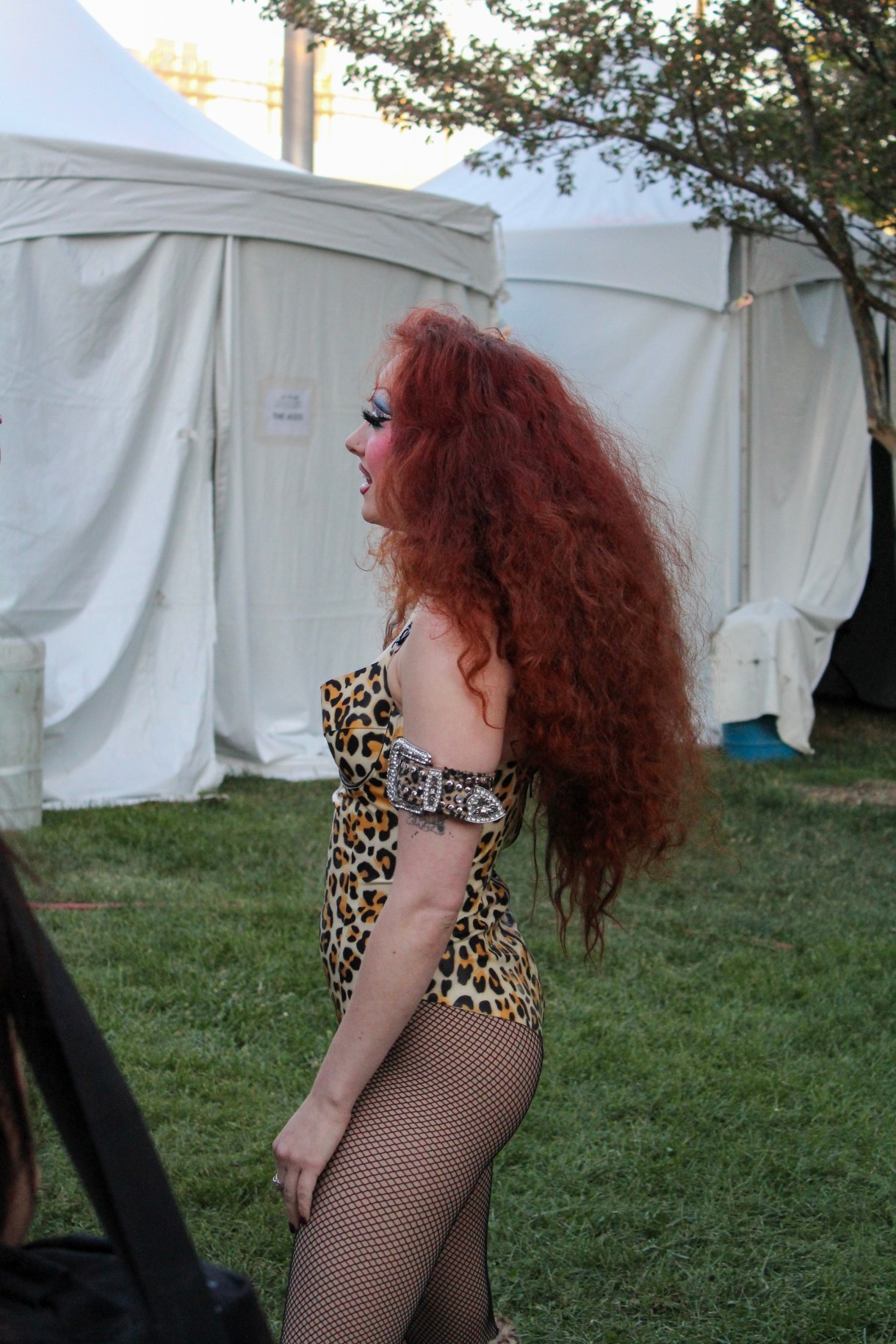
Chappell released “Pink Pony Club” as a single in April 2020 right as the world was shutting down. “I remember hearing ‘Pink Pony Club’ toward the start of quarantine and hoping that it would be one of the songs I performed in drag when the clubs opened up again,” says Georgie Morvis, a writer and drag performer based in Chicago. Georgie says they were drawn to the song because it spoke to the magic of queer spaces and, at the time of its release, “when we couldn’t access them, it was a way to transport us there safely.”
Indeed, at the height of quarantine, my then-girlfriend/now-wife Kristen Arnett and I longed so desperately for queer spaces that we created one in our small loft apartment in Las Vegas, every Monday night “hosting” (it was just the two of us, plus the dog, who hated it) Gay Club Night. We put on a playlist of shake-your-ass music and shook our asses, sometimes recording bits for social media of us actually pretending our home was a Pink-Pony-esque club. Unfortunately, we hadn’t discovered the song yet, but it would have ate at Gay Club Night.
“I liked that Chappell specifically was talking about going from the heartland to the coast, a theme she would return to on her tour to remind us that queers are everywhere,” Georgie says of the single.
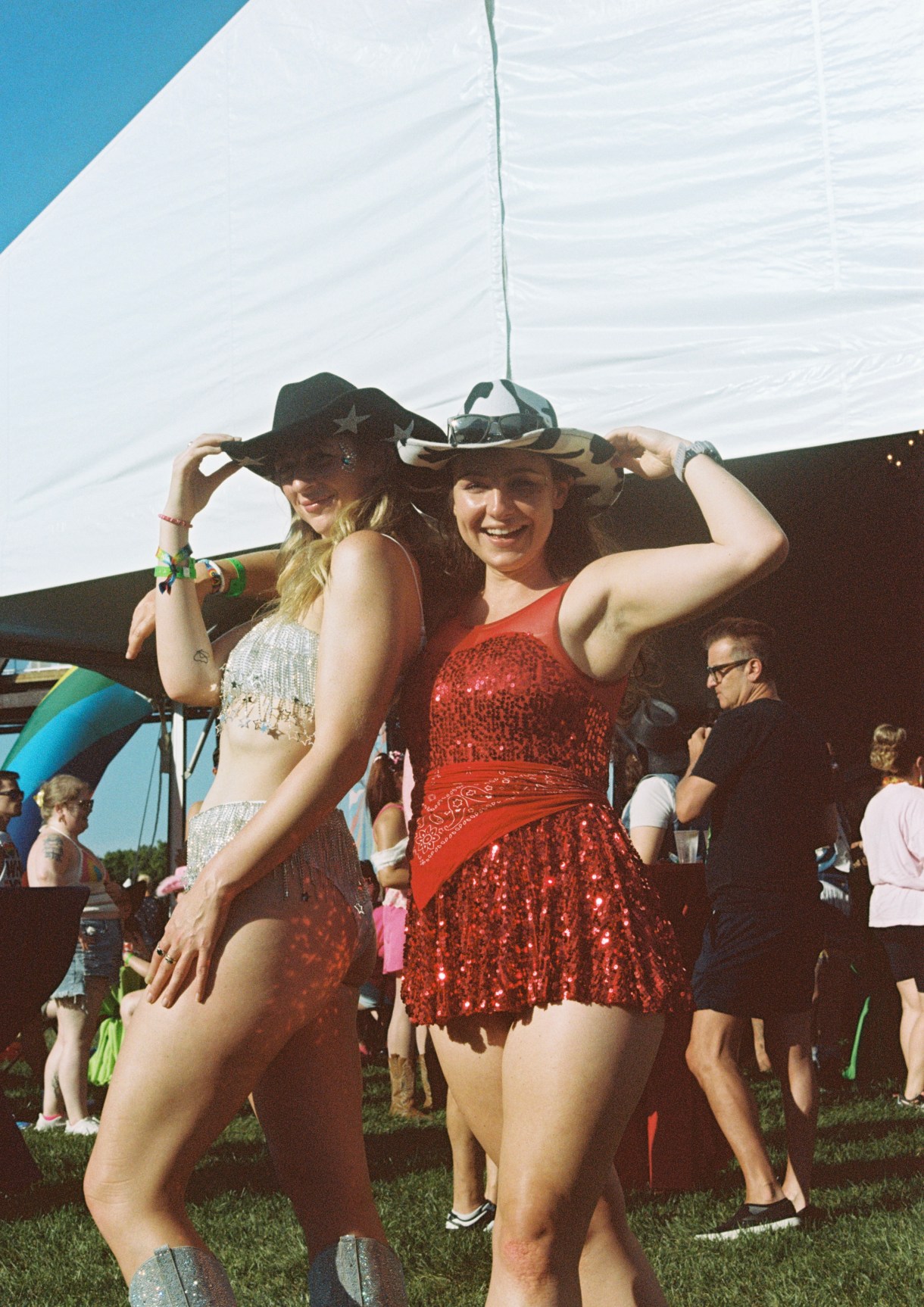
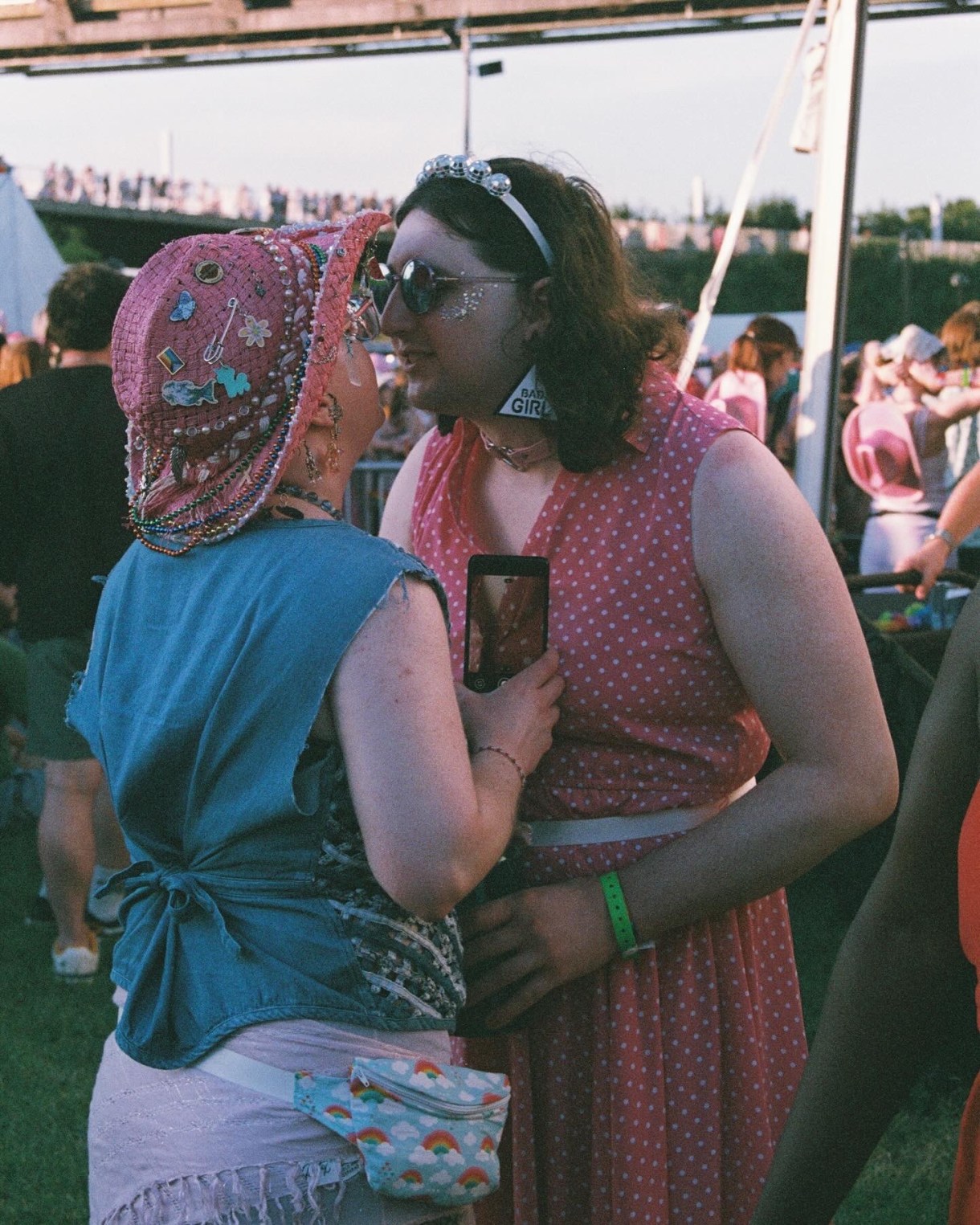
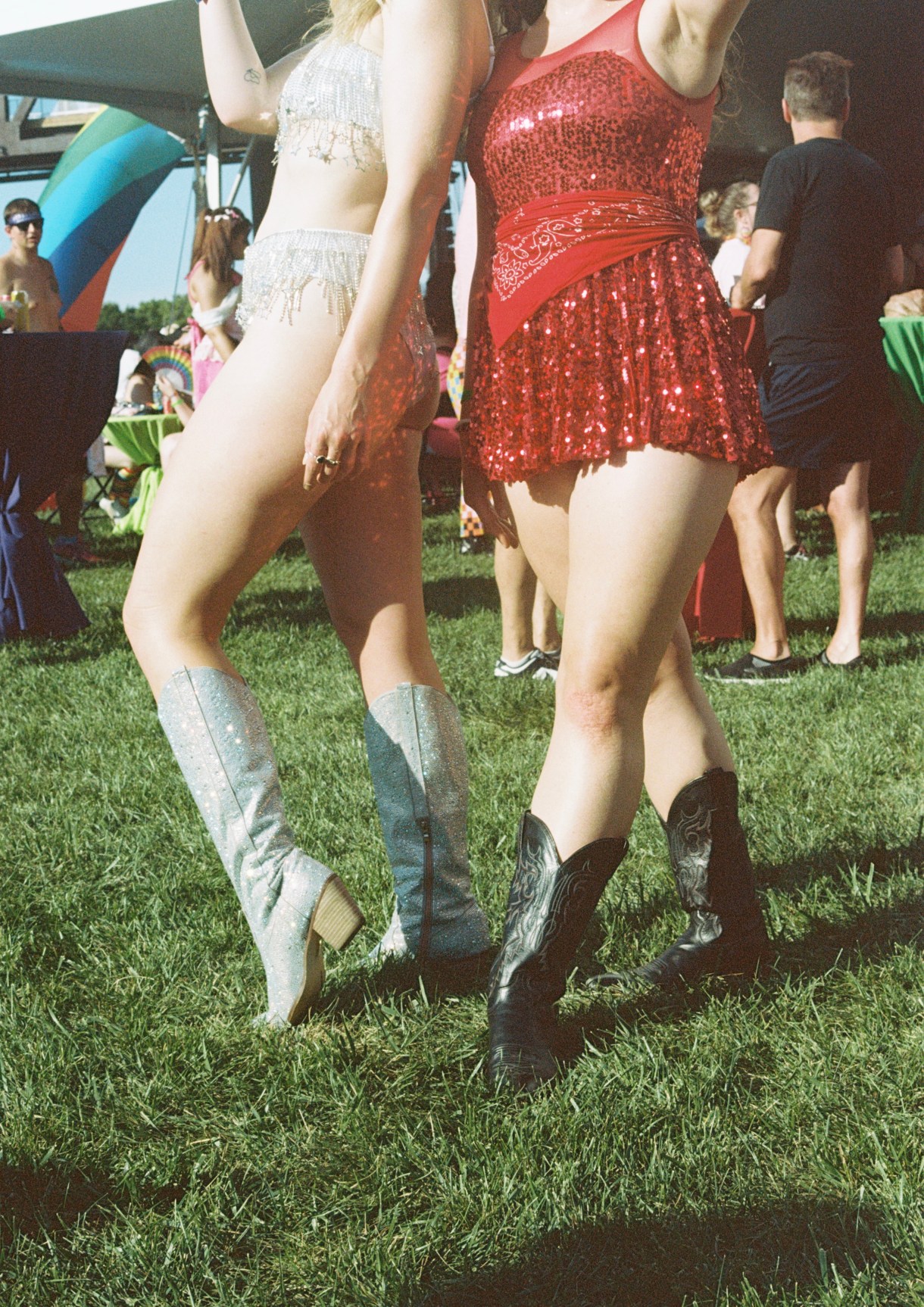
With “Pink Pony Club,” Chappell Roan brought queer party spaces into people’s homes. Now on tour for The Rise and Fall of a Midwest Princess — her first studio album, which features “Pink Pony Club” as one of its 14 tracks — Chappell has reversed the equation of the song’s sentiment. While the song longs to leave Tennessee in pursuit of a coastal queer club, Roan’s tour is bringing the queer club back to Tennessee, to North Carolina, to Florida, to Ohio, to Kentucky. Her tour encompasses midsized cities and places often overlooked by big name touring musicians, and while some of these cities she visits are considered “blue bubbles” in red states and certainly do have their own local queer scenes, Roan’s championing of the Midwest and South is significant and meaningful to her fanbase and a cornerstone of her artistry.
Over the course of a week, I spoke to Chappell Roan fans based in the Midwest and South, many of whom I have personal connections to, some who found me through social media word of mouth. Recurring themes emerge: Her fans describe her music as authentic, sexy, fun. They talk about her music as much as they talk about the other aspects of her artistry, including her dramatic makeup and costumes that often reference drag culture.
Without me even having to ask outright, almost everyone I talked to brought up her small-town Midwestern upbringing and what seeing her perform in the Midwest and South means to them as queer people living in places where anti-LGBTQ legislation has run rampant.
Her shows are an immersive experience that, much like the “Pink Pony Club” music video, create a whole queer world no matter where she is. She’s known for her show “themes”, which set the overall look for fans to dress to. She also hires local drag queens to perform on all her stops, and her own looks often pay tribute to drag icons or are otherwise over-the-top and campy. In all of these details, there’s a clear attention to and reverence for queer history and the queer art that’s come before her. Bringing in local drag performers indicates that Chappell isn’t just creating a pop-up space in a vacuum; she’s interested in engaging with the queer scenes that already exist in these places and building from them.
In May, Roan played to a sold-out crowd in my hometown of Richmond, Virginia. Last fall, before the craze, she played a show with about 1,000 attendees in my current home of Orlando, Florida. Both places are, again, often skipped by touring pop stars. Orlando, and Florida in general, is often discussed for its queerphobia and rarely for its lush queer scenes that thrive despite attempts to throttle them. I may not have been at either show, but after speaking to fans who saw Chappell in these cities that mean so much to me, I’ve become emotional just from imagining it. One attendee of the Orlando show, Kaci, tells me she tears up just looking at a picture she took during “Pink Pony Club.” “We had created a little community,” she says.
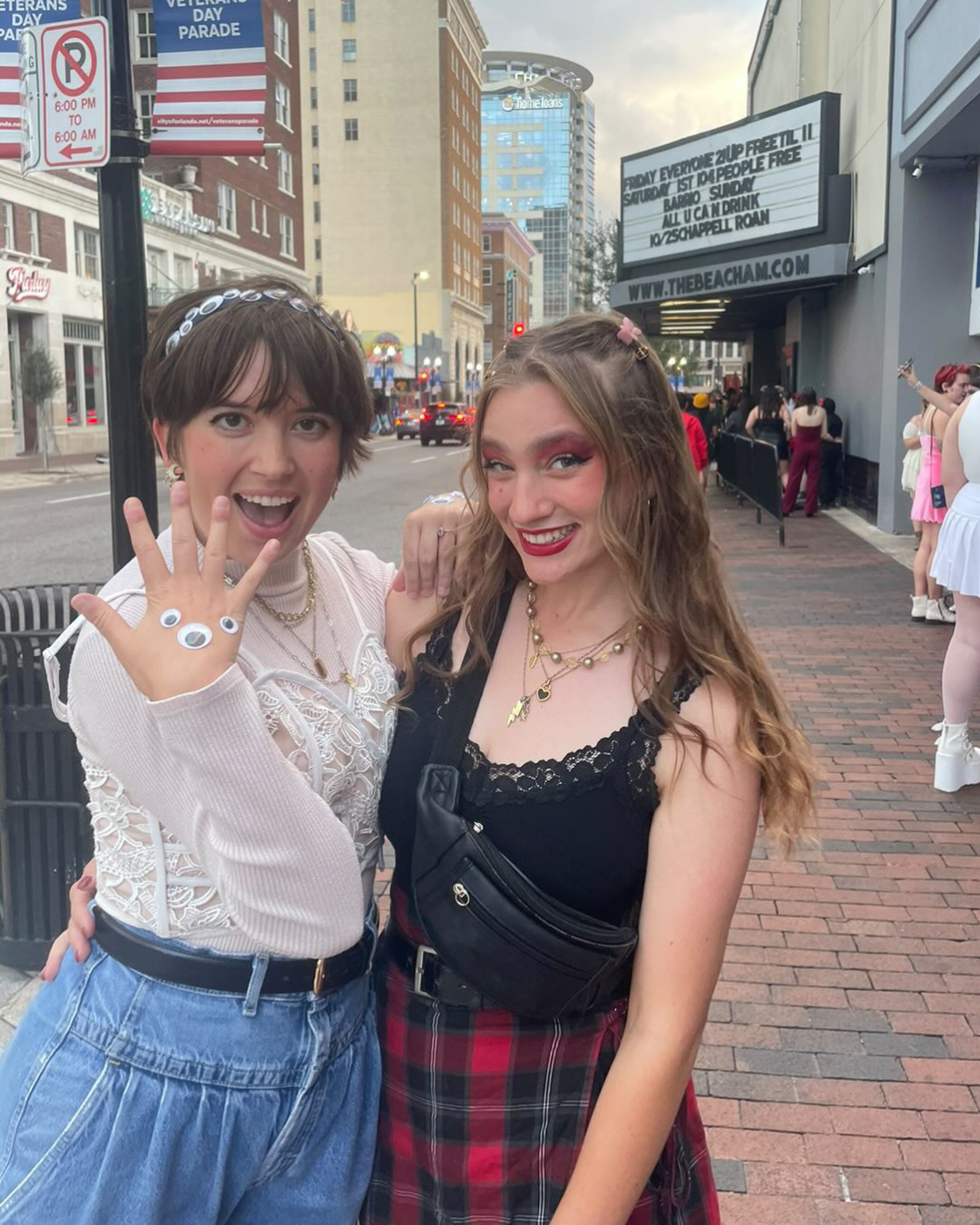
“I just really admire her commitment to lifting up and showcasing local queer talent! It’s nice to be able to go to a show where queerness is celebrated and straightness is the ‘other.’” – Kaci // Orlando Show
“The show was a really inclusive and fun experience. The theme was Pink Pony Club, so there was a stream of pink walking around the entire area of the venue from all directions. I received lots of compliments on my outfit and gave the same.” –Stephanie // Richmond Show
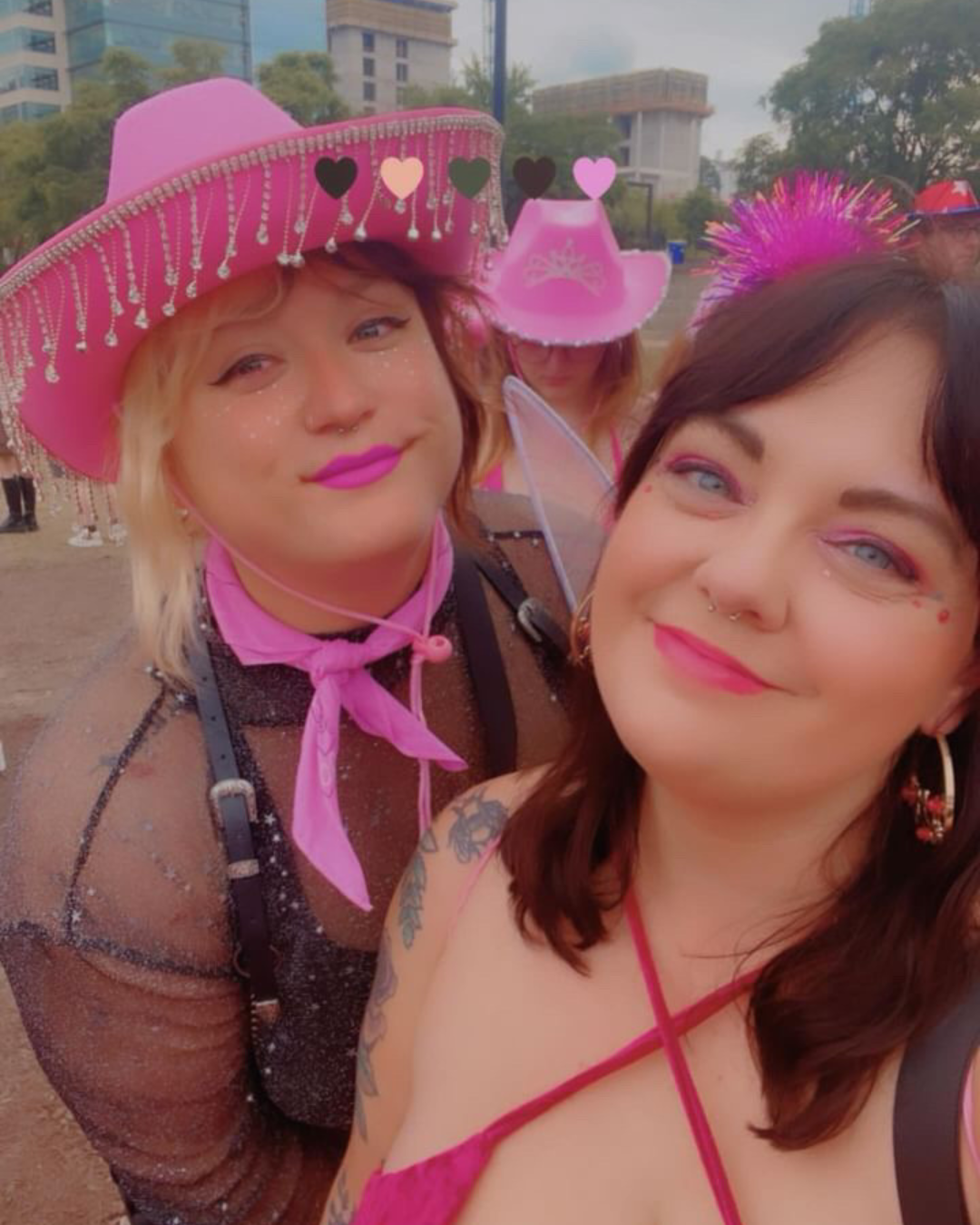
Indeed, in the dozens of conversations I had with attendees of her shows throughout the South and Midwest, it became clear that Chappell’s live performances create a technically temporary but meaningful and memorable community. And again, not out of thin air, but rather in a way that builds on what’s already there but may be suppressed or silenced by the government or ignored by other parts of the LGBTQ community, like the misguided fans who have called on Chappell to “protest” places like North Carolina and Florida due to anti-trans and Don’t Say Gay legislation. To do so would only serve to punish the queer and trans people who live in those places. DeSantis doesn’t give a fuck whether Chappell Roan comes here or not. Creating the super queer and freeing spaces of her shows is a more meaningful form of fighting for queer survival than “protesting” these places would be. And in fact, Chappell has actually done material protest by declining an invitation to play a Pride concert at the White House. “We want liberty, freedom and justice for all,” she said on stage during Gov Ball. “When you do that, that’s when I’ll come.”
Julia, a mental health professional and movement coach based in North Carolina, attended Chappell’s Raleigh show earlier this month. She focuses on embodiment in her work, and she says she became emotional at how embodied and herself she felt in the sea of pink hats at the show. “She facilitated an environment and experience that invited queer/trans embodiment,” she says.
Embodiment becomes especially powerful in places that are trying to restrict bodily autonomy for LGTBQ people and youth in particular. The Raleigh show was held at the Red Hat Amphitheater in downtown Raleigh, mere blocks away from the government building where a slate of anti-trans legislation passed just a year before. “To have a space like that overpower downtown Raleigh — even the neighboring parking garages were full and you could hear the crowd singing all over town — felt really powerful,” Julia says. “In a time where North Carolina’s legislative bodies are trying to diminish the safety and lives of queer children and adults, this show was a very needed reminder that we are here and we are together and we love wearing slutty pink outfits.”
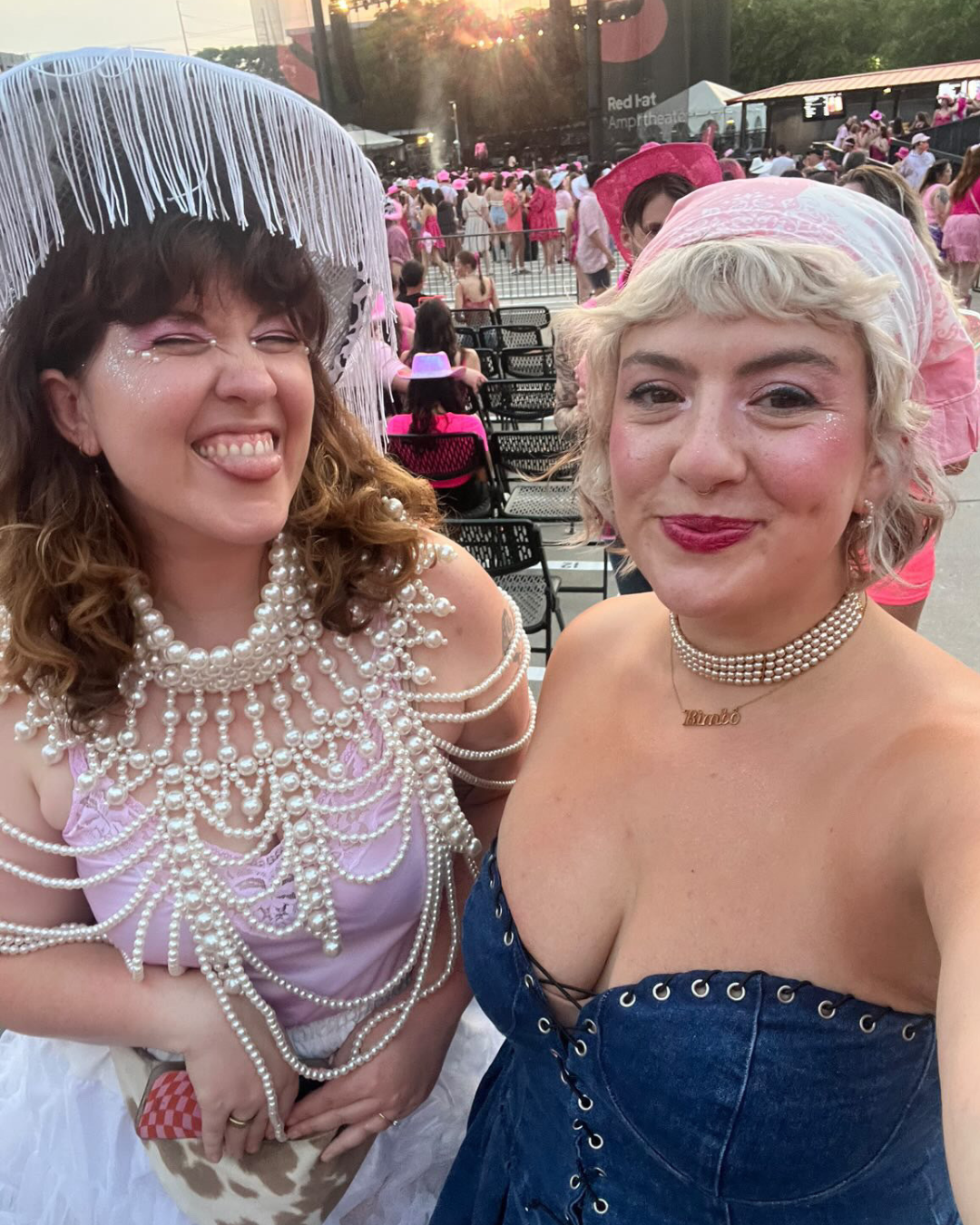
“As someone who came into their queerness in their mid-to-late twenties, I found Chappell a few years ago at a time when I think I really badly needed to see new yet familiar iterations of queer femme desire. And being at the show felt really powerful and like I almost…arrived in a space with other people who also delt held and seen and embraced in a way that appears is very needed in this moment.” –Julia // Raleigh Show
Kelsey Rhodes, a writer and an old college pal of mine, shared similar sentiments about seeing Chappell in Tulsa, Oklahoma. “Living in Kansas City for the past few years, at the same time as being in a long term queer relationship for the first time, has been an exploration of building queer community in a region that is politically hostile but queer-culturally vibrant,” she says. “The Tulsa Chappell show felt like an embodiment of that sentiment. Like anyone who has been afraid their gender-affirming care might be banned, or that they might be targeted for doing drag, or face stigma for being in a queer relationship…that all of that could be flipped into a celebratory, foot stomping, big belting under the disco ball kind of night.”
“I’ve been listening to Chappell since late 2022, and seeing this enormous of a crowd show up in basically Chappell drag and know every word to every song felt sweet. Like watching someone start to fly. I can’t wait to watch her keep it up, she’s clearly on some kind of wild upward trajectory.” – Kelsey Rhodes // Tulsa Show
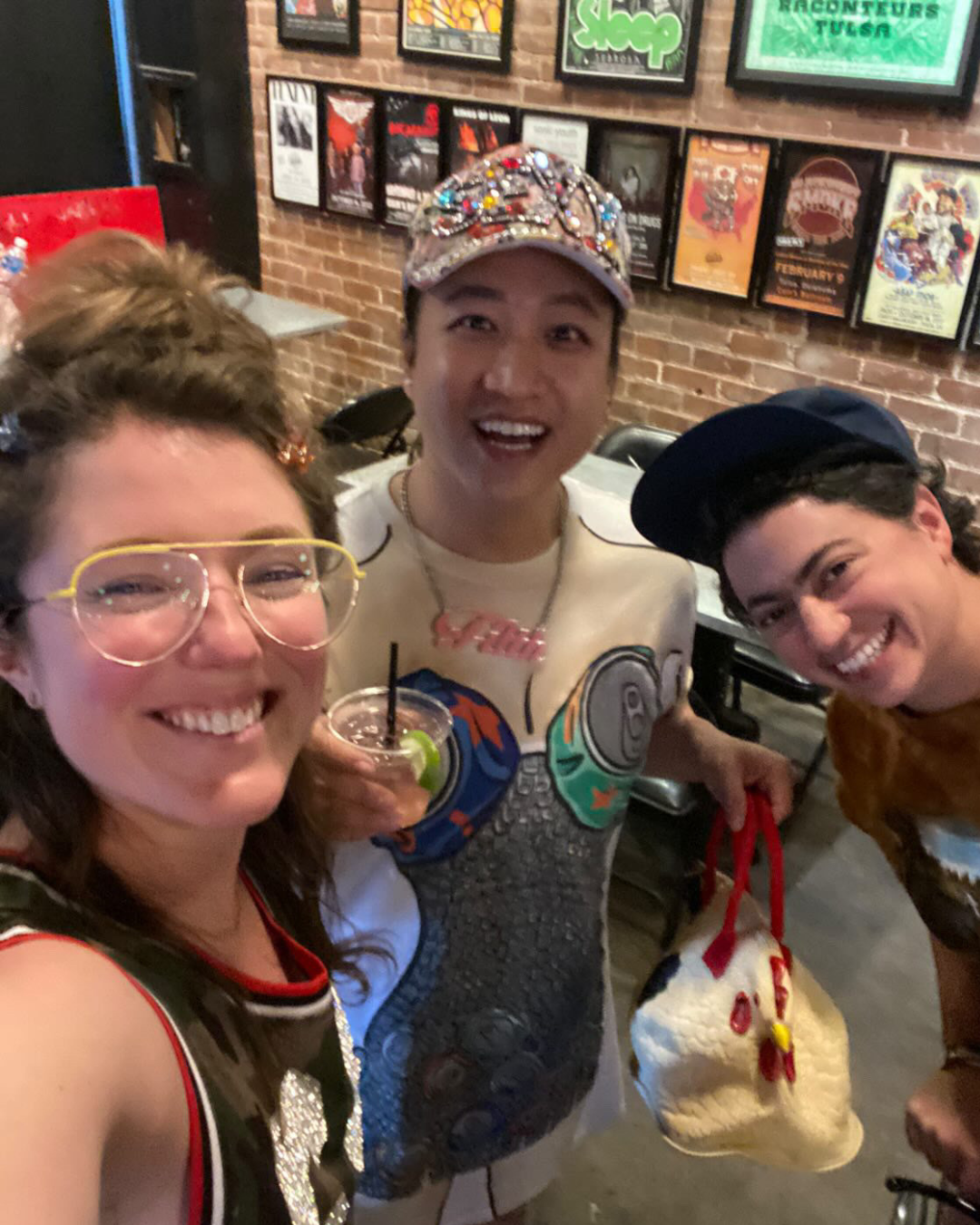
Yes, the Midwest Princess tour was planned out before Chappell’s surge in popularity, so one could posit it’s hitting the smaller venues in frequently skipped cities for that reason alone, but Chappell has made it clear over and over in interviews that she likes and prioritizes smaller cities when touring. “I love going to hick-ass states,” she told Trixie Mattel for Paper magazine. “Or, the craziest bitches are in Pawtucket, Rhode Island. It’s the small ass towns.”

“She really does an amazing job of creating a space where you can just dance and have fun and forget about everything else.” – Mackenzie Sullivan // Asheville Show
At the time of her interview with Trixie, Chappell Roan had never performed at a Pride event. She said her first would be either Pittsburgh’s or Kentucky’s, and Trixie said she hoped it would be Kentucky Pride. “I’ve done Lexington and Louisville Pride each like, probably 10 times over the years,” Trixie said. “I’m going to tell you, Kentucky is gay as hell.”
“You’re going to be their flagship Pride story,” Trixie said of Chappell’s eventual Pride debut. It was like a prophecy.
Of all her recent tour stops, Louisville in particular stands out as a quintessential example of the power of her presence in the Midwest and South (Kentucky itself is a bit of a bisexual state in that a lot of people consider it both Midwestern and Southern).
My sister Alex and her girlfriend Meredith Shock — a queer singer-songwriter based in Nashville — were among the tens of thousands present for Chappell’s Kentuckiana Pride set. Alex lives in Louisville and has attended Pride there before and says indeed it was never like this. What was once a brief pop-by for free stuff and some sun, became an all-day affair this year. As with all Chappell shows, fans dressed up and showed up ready to scream-sing through the set list. And as usual, Chappell delivered a brilliant look of her own, paying tribute to the legendary drag queen Divine, icon of queer filth and smut.
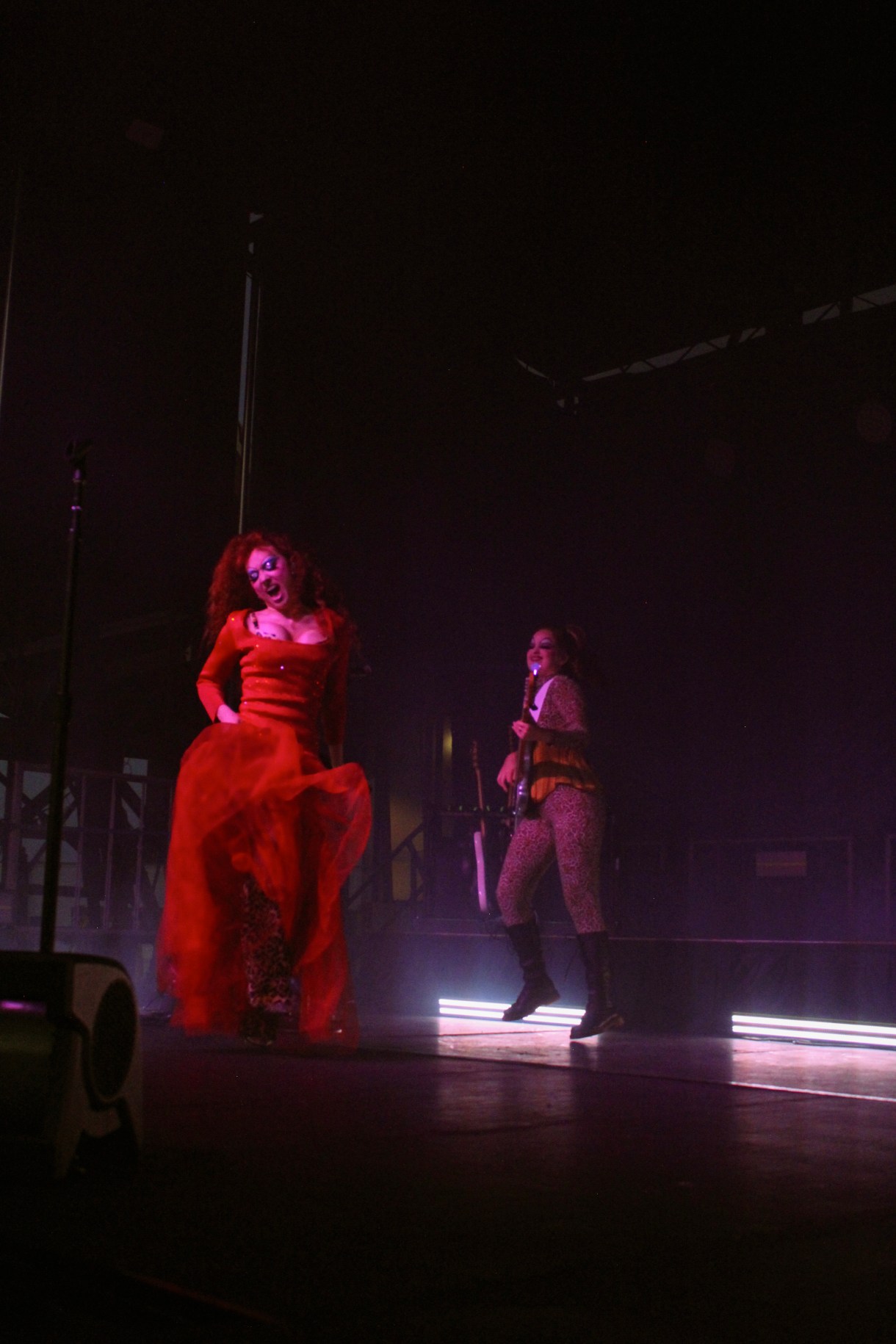
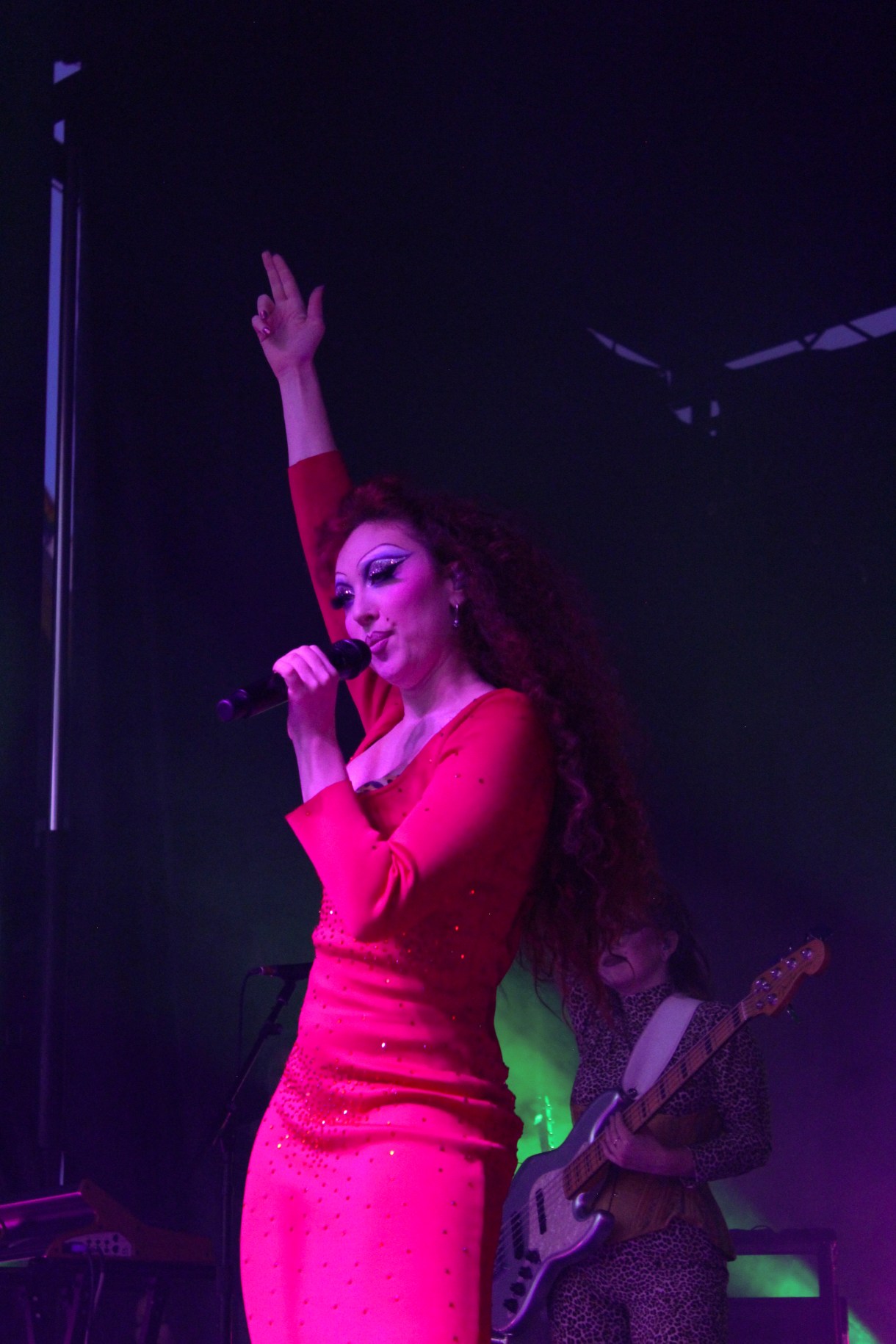
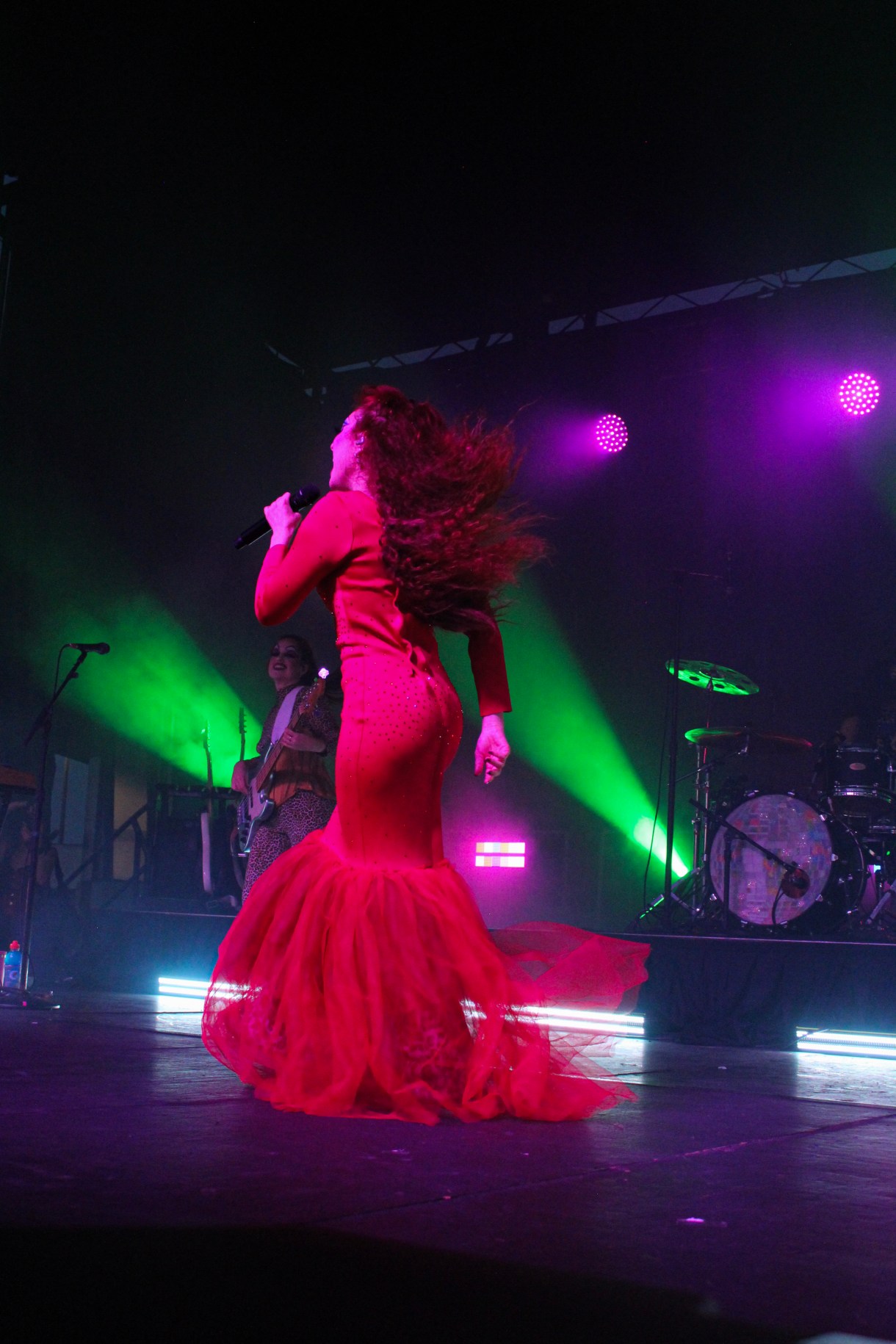
“She’s an artist we can all root for,” Meredith says. “It’s refreshing to see an artist of the people rather than an artist of the industry. The industry didn’t believe in her for the longest time, but people believe in her.” As a queer singer-songwriter, Meredith notices small details, like how Chappell keeps a water bottle on stage with her and drinks frequently between songs. “Other artists go through so much to hide water breaks during shows, but why? Chappell doesn’t care if we see her drink water!”
“Her album isn’t new, but it’s hitting so hard because it’s exactly what people crave from pop music right now. Well written songs, dance anthems, themed shows, and messaging that makes listeners feel hot and powerful. She’s found a way to write songs that are so unfiltered and unapologetically HER yet so relatable.” – Meredith Shock // Kentuckiana Pride
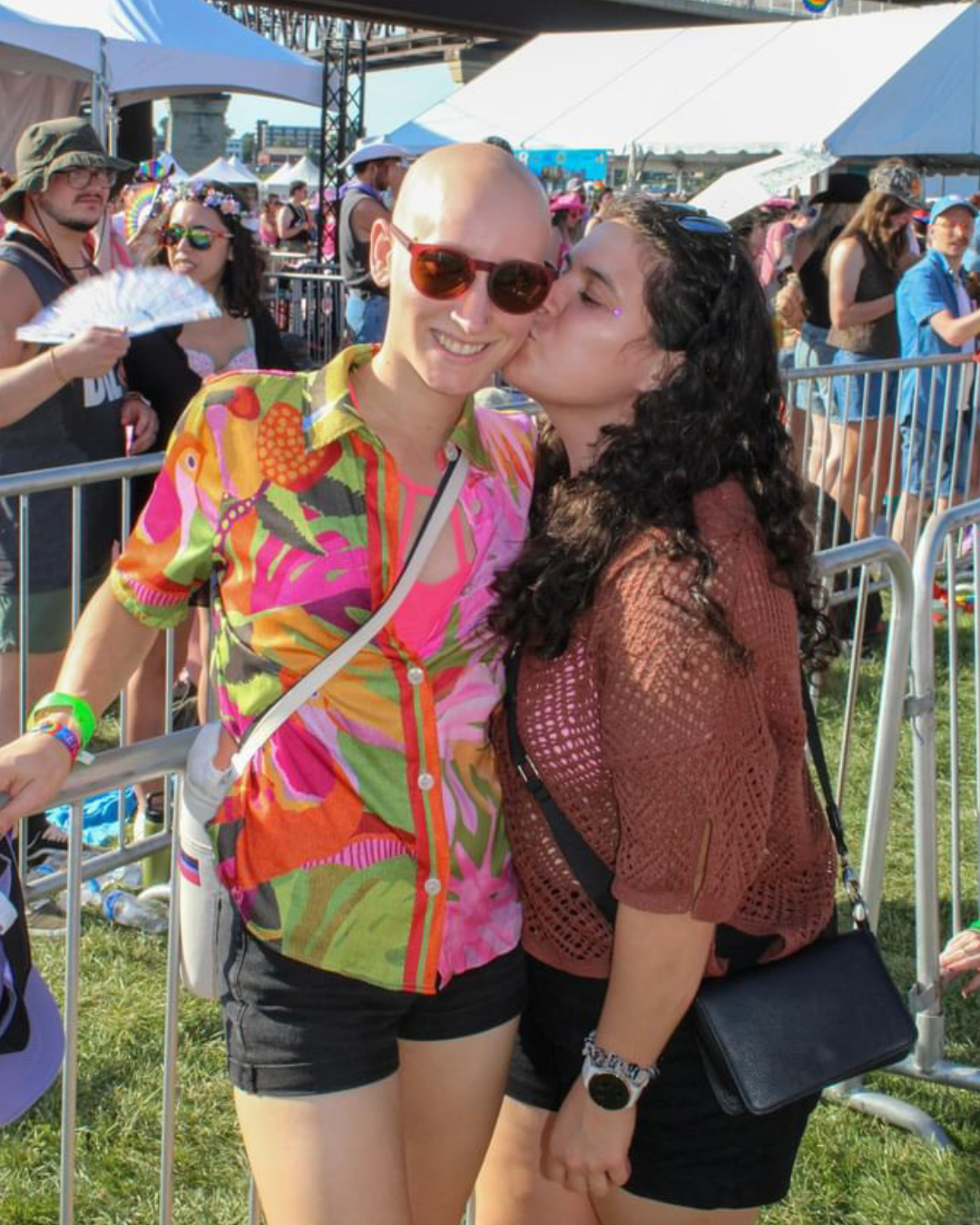
Kentuckiana Pride, like many of Chappell’s shows, is held right in the waist of the Bible Belt, creating an environment that’s especially liberating for fans with backgrounds similar to her own. Chappell grew up in a conservative religious community in Willard, Missouri, attending church three times a week. The Aces, who opened for Chappell at Kentuckiana Pride, hail from Provo, Utah and were all raised in the Mormon church before eventually leaving, three of the four band members coming out as queer. A Pride show in the Bible Belt featuring two queer acts who grew up in strictly religious environments and with one of them dressed like Divine? Now that’s what I call church. Chappell’s mom was also in the crowd at Kentuckiana Pride, and Chappell gave her a shoutout from the stage. It can mean a lot to young queer people in these regions to see familial support. And it’s the queer artists who are from the South and Midwest who really understand what it means to make a life here. Megan thee Stallion’s massive arena tours similarly prioritize the South, paying tribute to her Texas roots, and her tour this summer is also ultra gay and femme.
Morgan, a Chappell fan and queer Midwestern woman raised conservative and religious, says the series of YouTube videos Chappell put out leading up to The Rise and Fall of a Midwest Princess that document her Missourian roots could have been talking about her own life and childhood. “Seeing not just who I am today but also who I used to be represented by Chappell and her music does something for my soul that I don’t think anything else ever really has,” Morgan says. “Her album really feels like a love letter to Midwestern queer and folks living in conservative/religious towns everywhere.”

“I’m 28 now and really thought I knew myself well, and for the most part I did, but finding Chappell earlier this year really validated parts of myself that I think I haven’t let fully breathe in a long time. I’ve been out for a while now, but still finding myself, and in the Midwest that can feel SO incredibly challenging. Sometimes you really feel like you have to live in a larger city to feel part of queerness on a larger scale. Having Chappell be not just a femme lesbian, but also being from the Midwest and having a religious background broke me wide open.” – Morgan // Cleveland Show
“The Midwest is my home, and I thought for a long time that my Midwesterness and my queerness were incongruent with each other,” says Leah Johnson, award-winning queer YA author and the owner of indie bookstore Loudmouth Books in Indianapolis. Leah moved to New York for grad school in an attempt to also embrace her queer identity, she explains. When she heard Chappell’s song “California” — about the heartache of leaving Missouri for California — something clicked. “I knew I’d found an artist who — like me — was coming into the knowledge that sometimes you have to leave home to learn to love it, and that our people are everywhere. We just had to find each other.”
“She’s such a stellar performer, and to see her in Tennessee of all places — especially given her lyrics in ‘Pink Pony Club’ — alongside so many queers was a particular delight. Nothing but respect for my Midwest Princess 🫡” – Leah Johnson // Bonnaroo
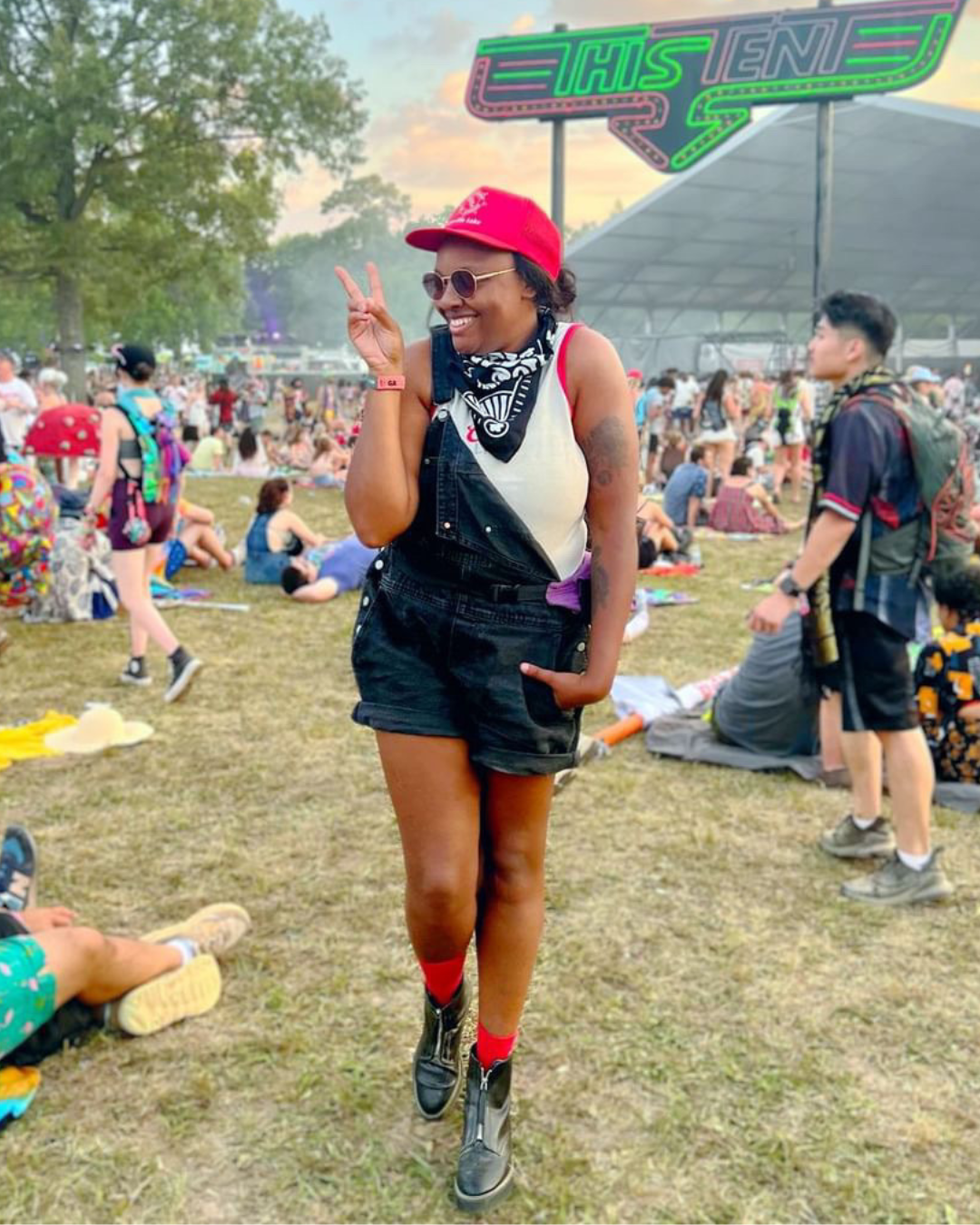
Some of the fans I spoke with also come from Missouri, and Chappell’s lyrics about complicated feelings for home resonate with them. Analyssa Lopez, who has written for Autostraddle and is from Missouri and now lives in LA, fittingly, connected with the song “California,” too. “I miss the seasons in Missouri / My dying town,” Chappell croons in the song. “I think there’s so much in her songs about wanting to live in a big city that is so queer-from-Missouri, just like this vague idea that Los Angeles or New York are the places you can be yourself, but then you’re still thinking about where you’re from all the time,” Analyssa says. “Like the idea that you spend your life wanting to get away, and then when you’re away you feel still so deeply tied to and from and of that place, down to your bones.”
Gen Greer, who has also written for Autostraddle, grew up in Missouri and now lives in Ohio. She says she didn’t know much about Chappell’s upbringing when she started listening to her music but then, after paying closer attention to the lyrics, did a deep dive. “One of the things I love about her is that she’s able to exist as a person who finds ways to say ‘I’m a fucking Midwestern princess, I’m queer, I’ll give you camp and sex positivity, I had dreams beyond Missouri and I worked really hard but I’m not going to forget that part of myself,’” Gen says. Current Autostraddle writer Gabrielle Grace Hogan is also from Missouri and is a Chappell fan. While Gabbie came to Chappell’s music before knowing she was from Missouri, once she found out about their shared homestate, she says it’s what kept her both rooted to Chappell and rooting for her.
Gabbie’s girlfriend Maddie is a massive Chappell fan and has seen her four times live at various points of her career: opening for Fletcher in Utah in 2022, on her solo tour twice in Dallas, and opening for Olivia Rodrigo during the GUTS tour. The two solo tour shows in Dallas — where Maddie lives — took place eight months apart. The first, in February 2023, was for a crowd of about 200. The second attracted 2,500 fans. Chloe Gilke, who I worked with at our college’s newspaper, has similarly experienced both versions of a Chappell show: the super small, intimate shows at the beginning of her career and the now-massive ones. She saw Chappell in Austin, Texas in February 2023 with a crowd that couldn’t have outnumbered 250, and Chappell sang an at-the-time unreleased “Red Wine Supernova.” This week, Chloe attended Bonnaroo where Chappell played for tens of thousands (just one day after Kentuckiana Pride!). “The fact that the biggest crowd I’d seen at that stage all weekend was for a lesbian was absolutely wild,” she says. “Just seeing tens of thousands of people singing and dancing along to these songs — and in the middle of nowhere Tennessee!!! — almost moved me to tears.”
Chloe and Maddie both talk about Chappell’s success in similar ways and are stoked about how popular she’s gotten. “It’s so overdue that we have a pop star that’s sexy, dramatic, and playful and also GAY,” Chloe says.
“Since Taylor Swift’s meteoric rise, pop has become increasingly earnest and confessional, and consequently less danceable, less fuckable, which meant there was a lot of space and desire for songs that are horny and fun, especially after quarantine when people were wallowing in isolation,” Maddie adds. She makes playlists on TikTok and says that for years it’s been consistently true that the most saves and engagement she gets are when she curates sweaty club music.
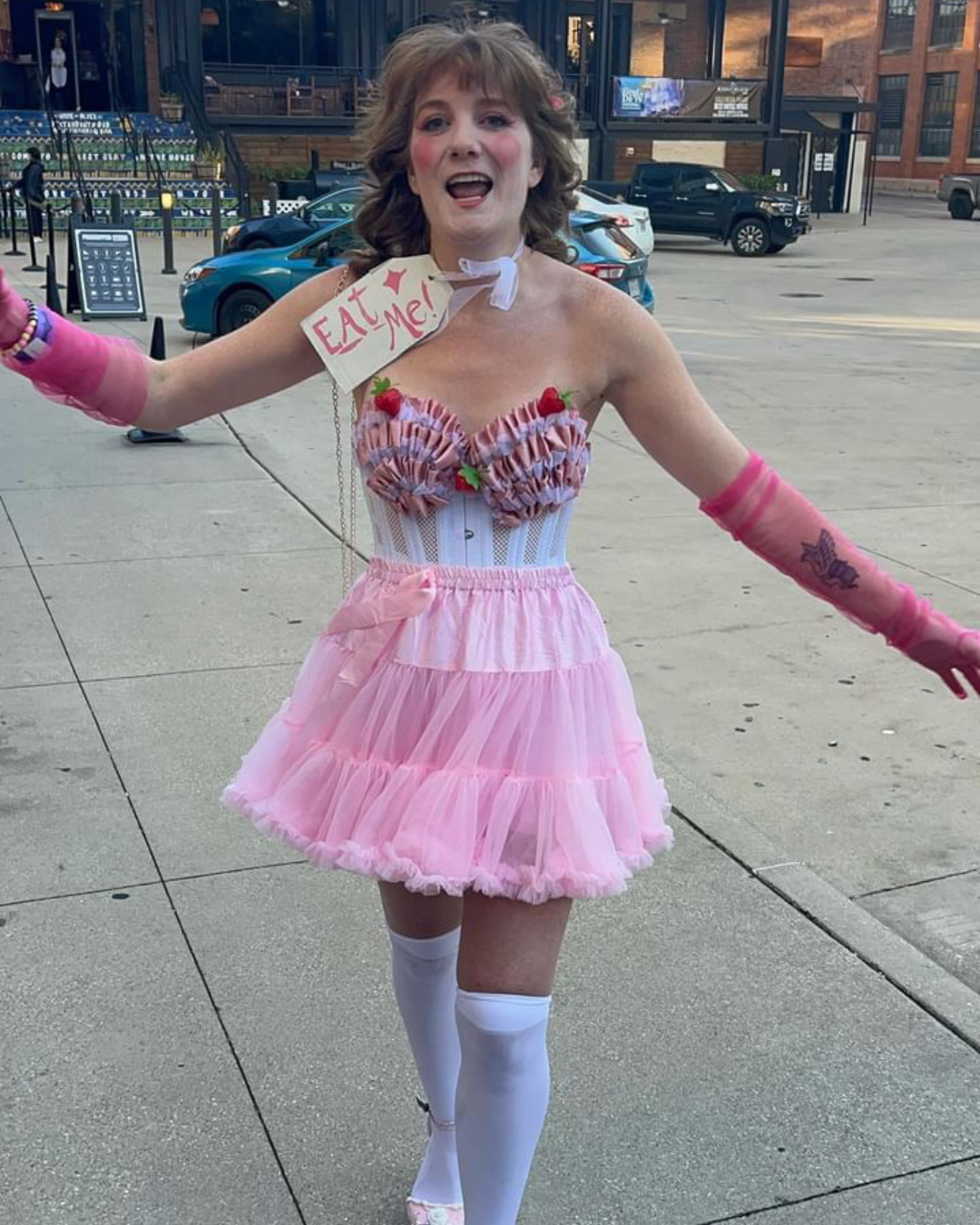
“I do think her queerness and her loudness about it made this really safe and special place for her fans to build a real loyalty to her.” – Maddie // Multiple Shows in Texas and Utah
“The moment really did need someone who was doing campy, lusty, and fun music. Chappell does all of this and she happens to be very good,” Maddie continues. “Pair that with a performer who has always made smart references and strong vocals and knows exactly what kind of pop star she wants to be, and that’s a recipe for success.”
Maddie also reiterates Chappell’s sense of maintaining and supporting queer community. “The ethos of her work is fundamentally about queer celebration,” she says, noting that even when Chappell was touring out of her own car, she gave a portion of her Dallas ticket sales to local organizations fighting to protect Black trans folks, like For the Gworls.
With her increased popularity, the lengths some fans have gone to to attend her shows are impressive. Her fans are willing to travel across state lines to see her. Kentuckiana Pride saw an influx of out-of-staters eager to see Chappell for — again — TEN DOLLARS. One fan in the Midwest, Lucia R, tells me she has tickets to see Chappell twice in two days. She got tickets to Lollapalooza to see her after All Things Go tickets sold out and, when a Lollapalooza “pre-show” was announced at The Vic, she got tickets for that, too so she could get the small venue and giant festival Chappell experience.
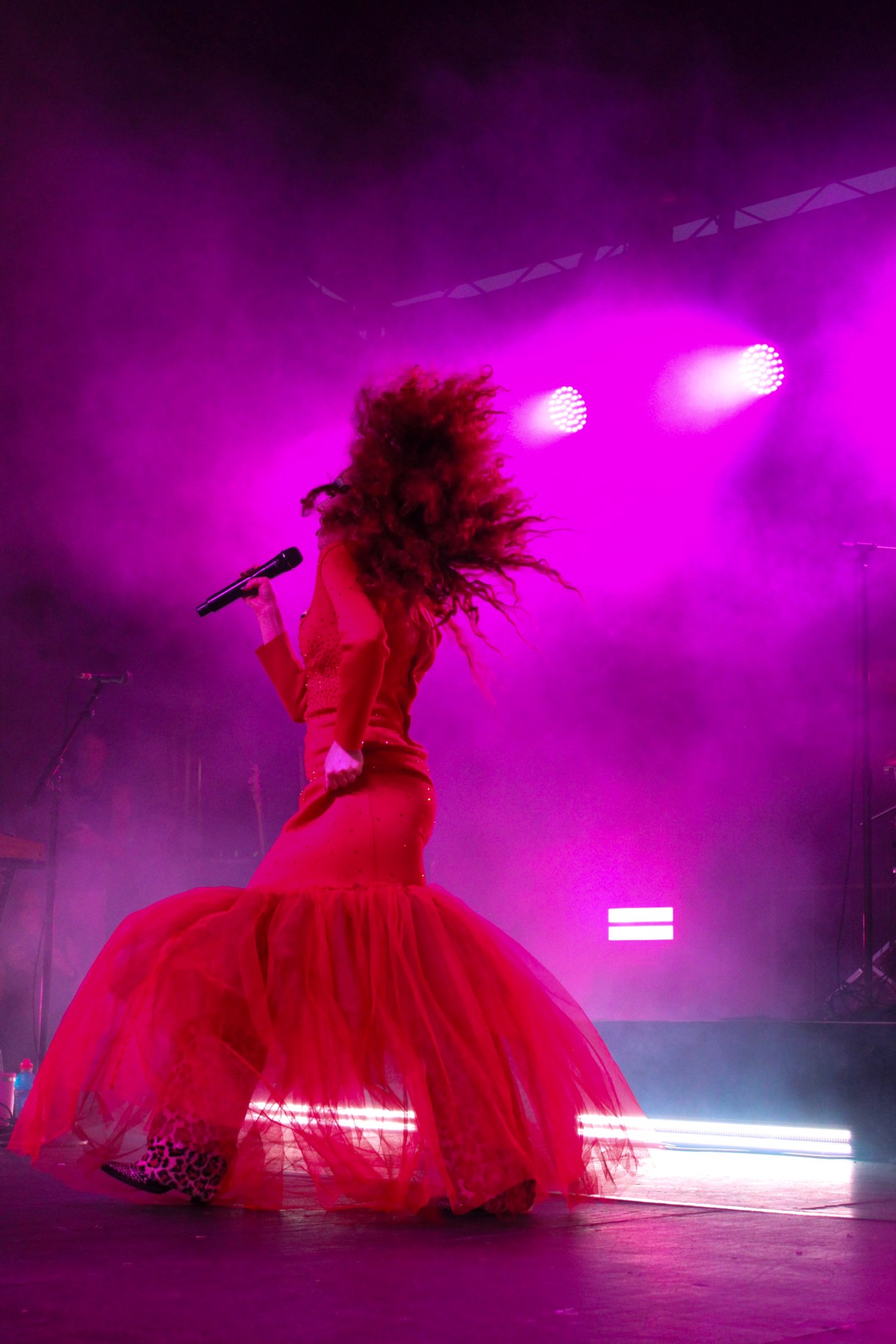
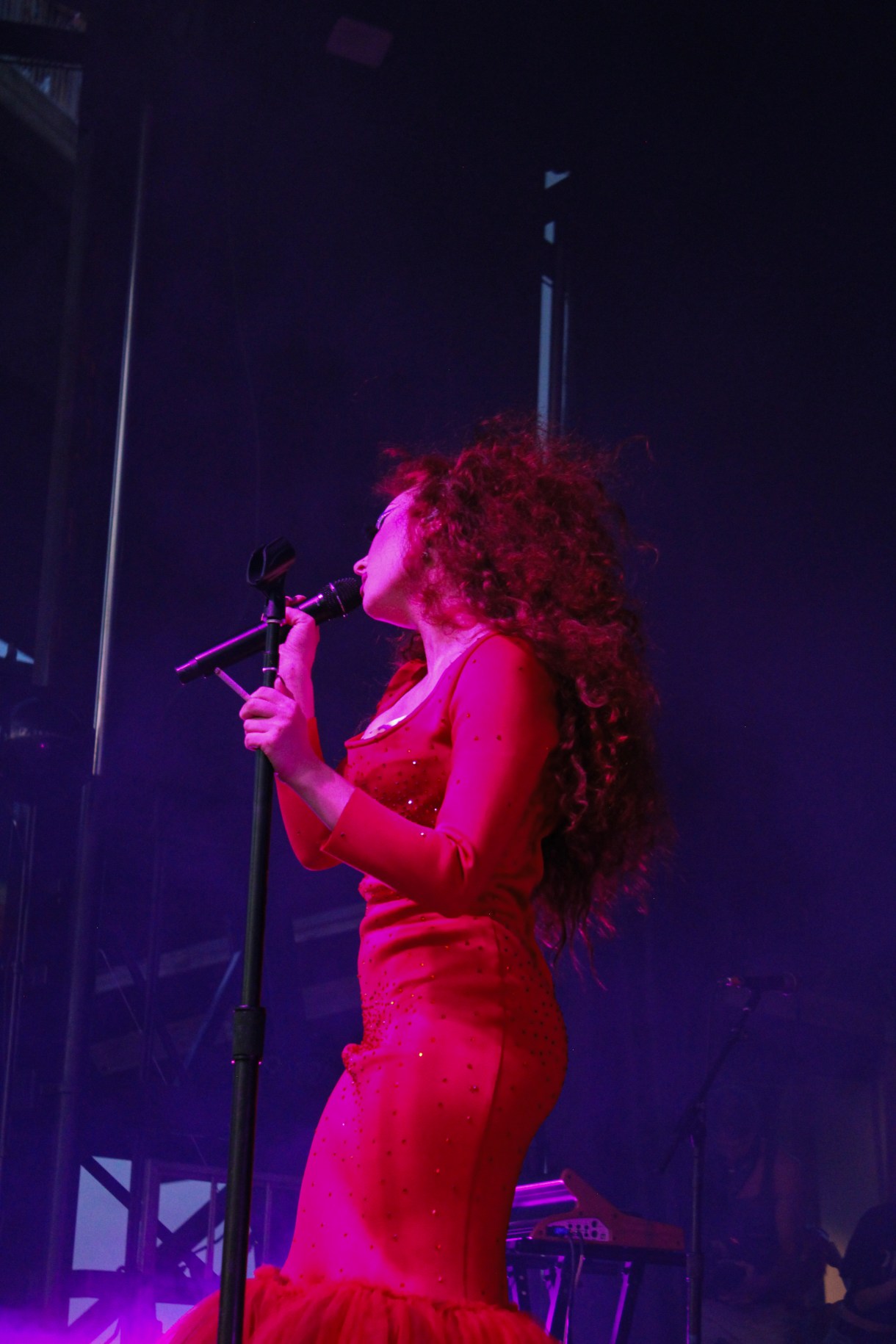
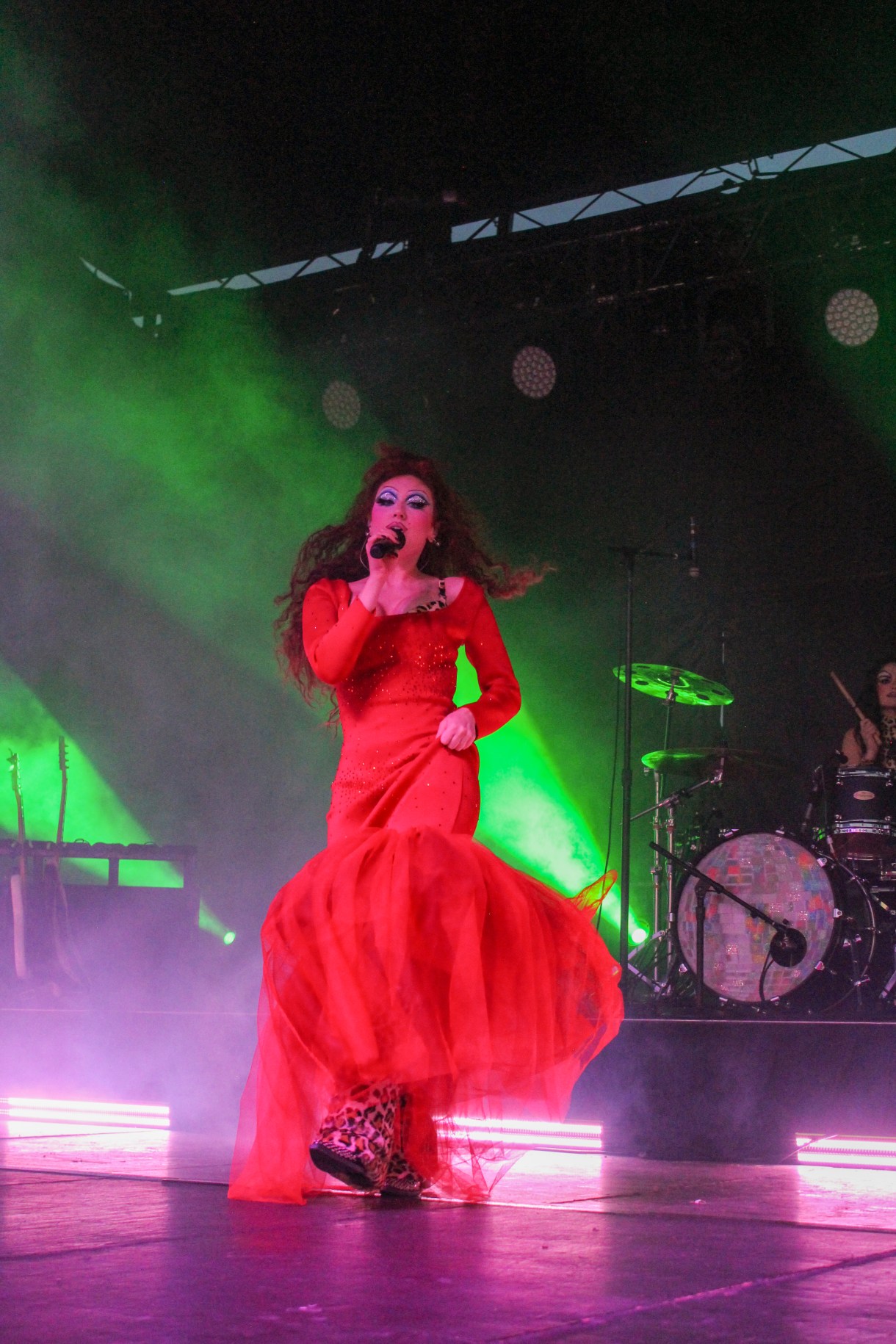
Then there’s the crew of queers I know in St. Petersburg and Tampa, Florida who thwarted convention to see Chappell perform live this May. The St. Pete show sold out long before its date, and resale ticket prices were through the roof. As my pal V put it: “It will be the cultural femininomenon of I think at least the year, so I was like I have to be a witness to this.” The group got creative. V got a tip that some folks had gone up on a rooftop nearby the venue to watch the show. But when they got there, the door was locked.
The St. Pete crew were told they’d need to go to the back alley and access the roof via a ladder, supervised by a guy who worked nearby who facilitated the Chappell roof experience (V, who says ticket prices had gone up to $1,900 day-of for the show, threw Ladder Guy $20 for his kind gesture). The Chappell roof experience was every bit as gay as the real deal. V recognized almost everyone on the roof from various parts of their social and dating life. People were dancing, though they had to be careful doing so, so as not to disrupt downstairs. V says despite these limitations, they were still able to scream-sing “Naked in Manhattan” from the rooftop.
Some of the group didn’t want to go up to the roof, but they still made their own Chappell dance party happen down in the alley below. The trash alley transformed into a gay club with the swiftness of the “Pink Pony Club” music video transformation, everyone dancing among the dumpsters, and some folks climbing on top of a trash compactor to get a view of the show. My friend Molly was among the trash dancers and says it was a “truly memorable experience.” V joined the crew down below at one point and, when Chappell played “Pink Pony Club,” sang the lyrics as “trash alley club.”
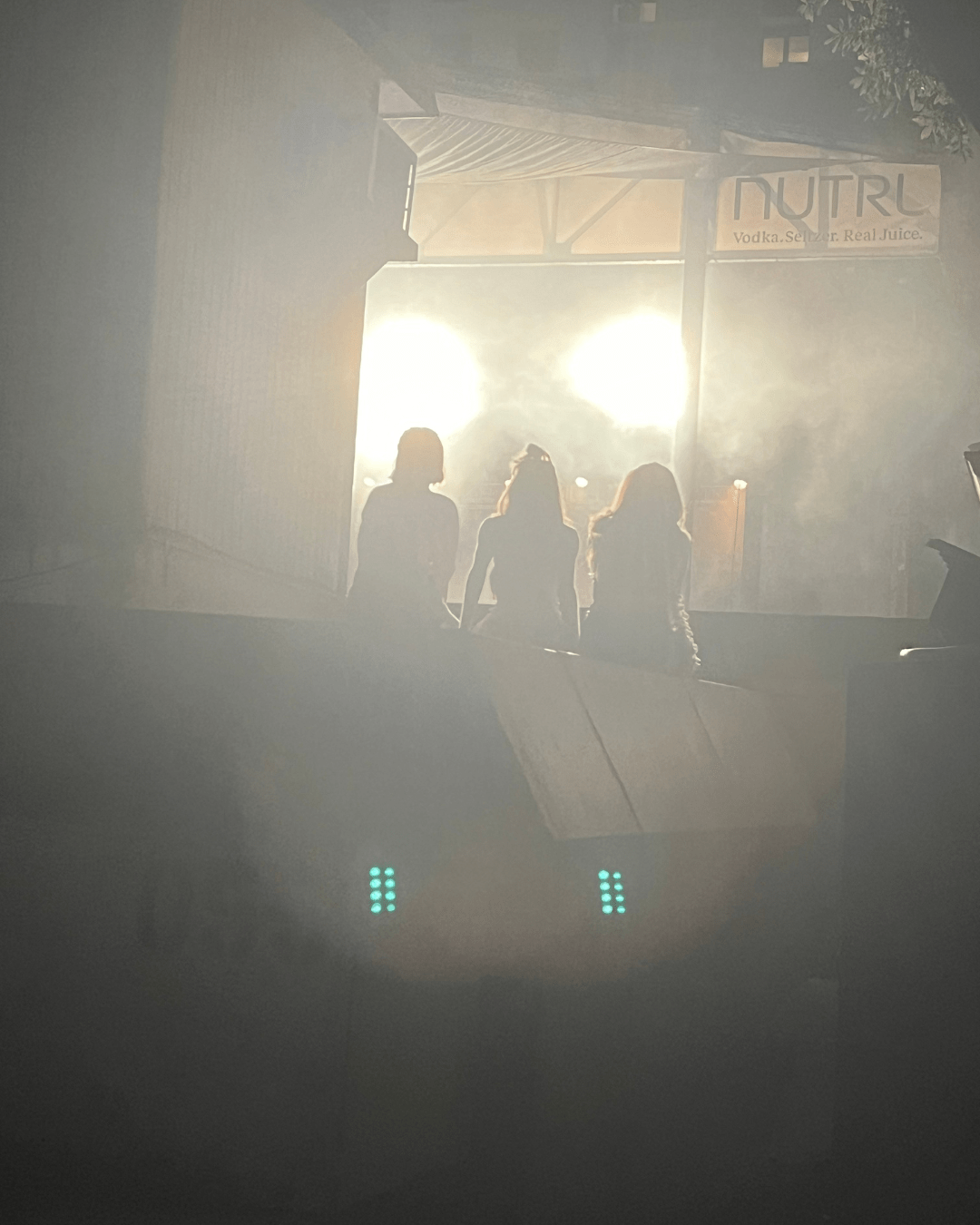
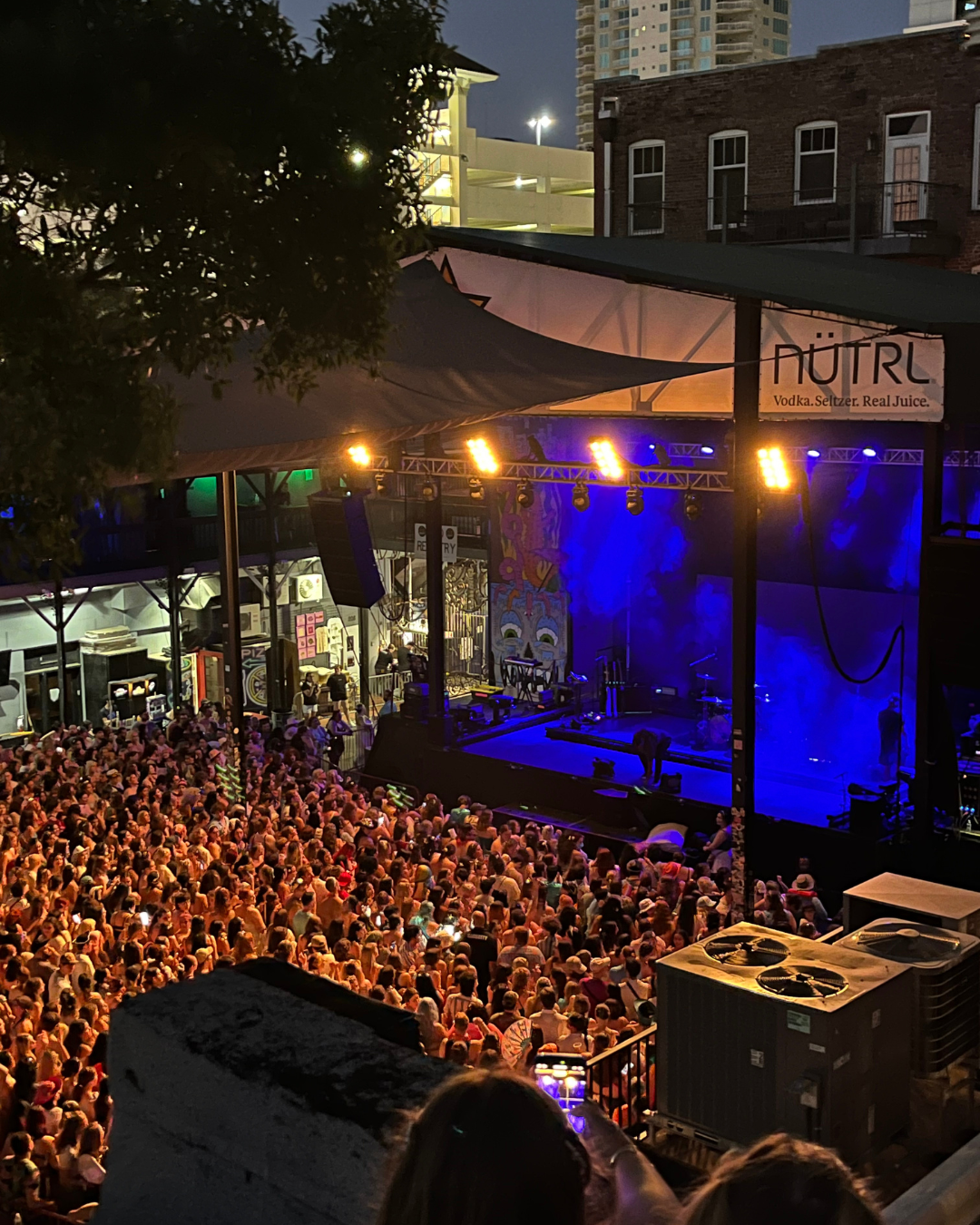
V says they usually only really experience the concept of “queer magic” at CampOUT, the LGBTQ+ youth summer camp in Florida they volunteer at. “But this was like queer magic 3.0, 5.0, it was so beautiful,” they say. “Everybody just made the best out of whatever situation they were in because they couldn’t get tickets to this thing,” they continue. “People were having a blast in the trash, on the roof, around it at the bars, outside the venue. Everybody was just so happy. No one was bitter about not having tickets. They were just shimmery and excited.”
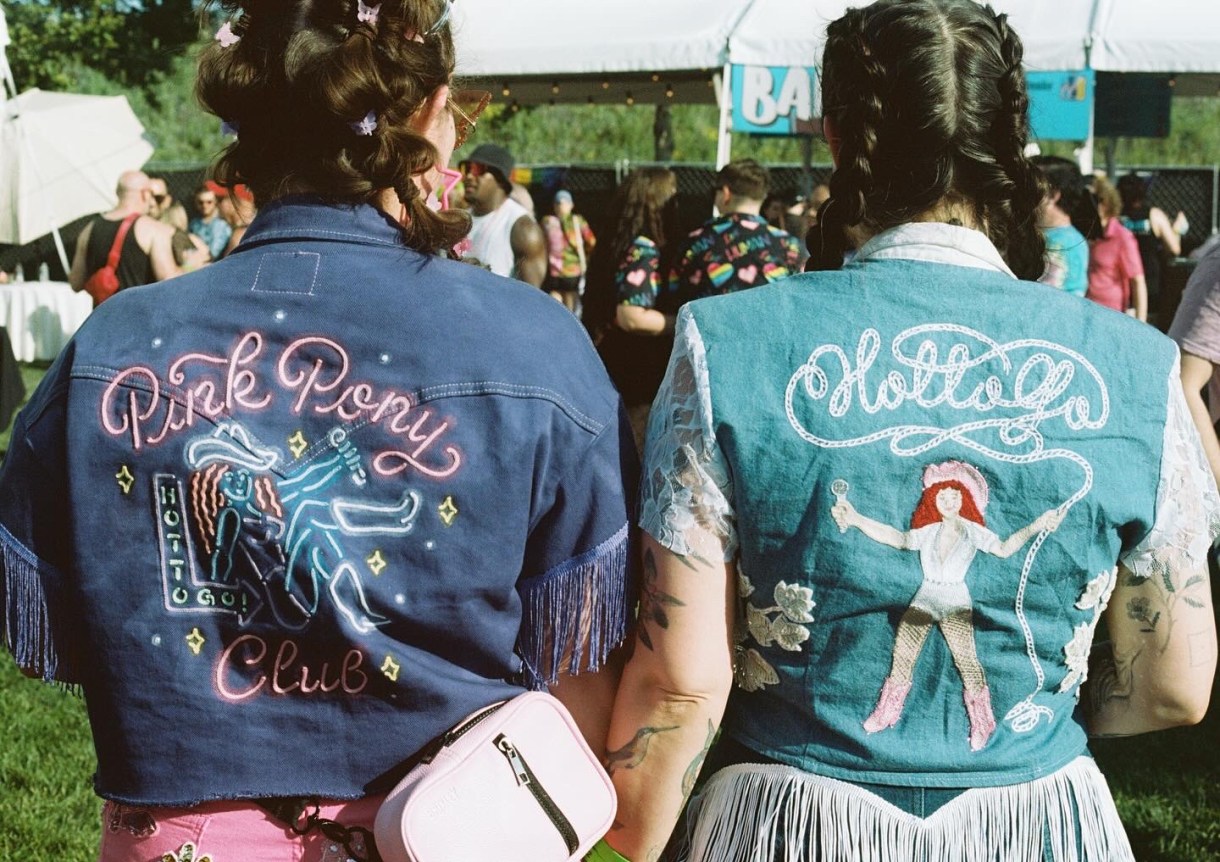
The fans I talked to aren’t worried about Chappell Roan becoming bigger and bigger. They’re thrilled. Maddie says she’ll happily pay more money if it means Chappell gets a bigger stage for her music. Especially for her fans in the Midwest and South, the appeal of Chappell Roan is about so much more than her music.
“The reality of living in the South is that there is so much queer life and queer joy and queer resistance to be found, and Chappell knows that,” Maddie says. “I find it frustrating how people write off Texas as a place where no queer people are, but it’s Lawrence vs. Texas that cemented our right to exist in the first place. Real people fought for that. In Texas.”
“I think there’s this idea that you can’t be queer in XYZ city,” she continues, “when it’s like, the second-ever gay rodeo was in Golden Spike, Utah. I like that Chappell knows that queer people don’t just live a train ride away from Cubbyhole. That they are in small towns and red states and they can dance to silly pop music there, too.”
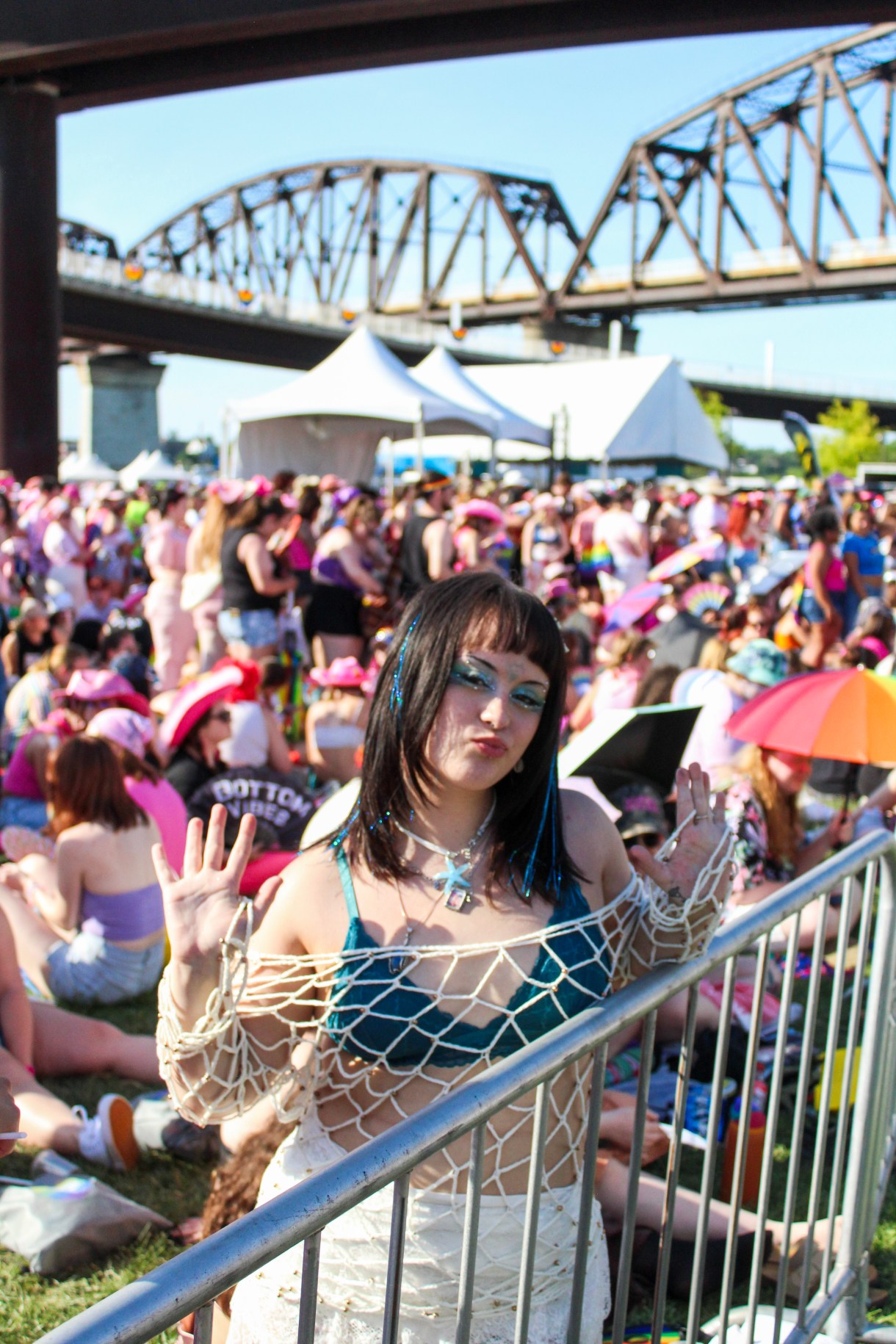
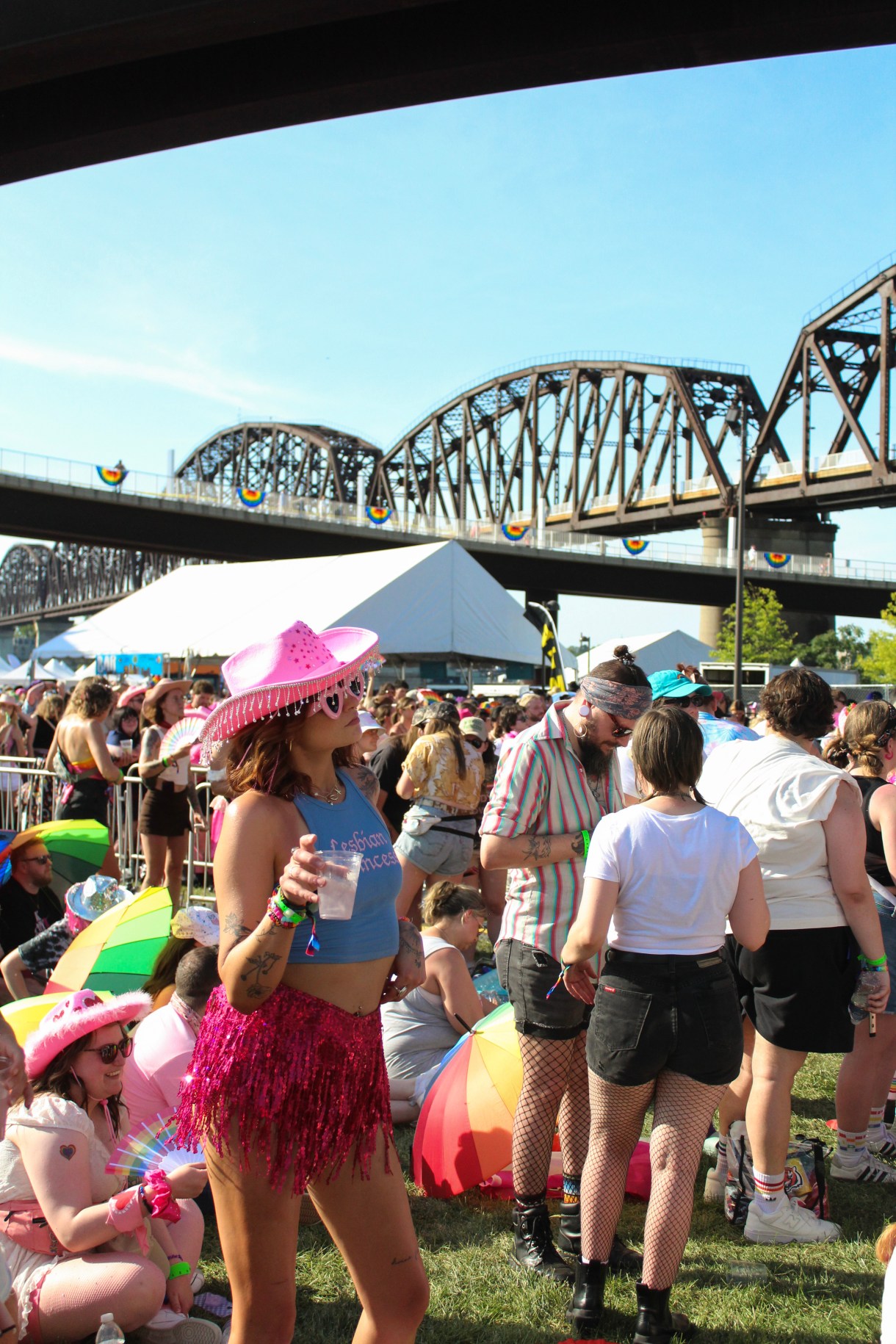



Love this article!
thank you!
This is genuinely lovely and speaks so much to why I choose to stay in Florida as a creative artist. Wonderful!
and now i wanna stay tooooo
i love this so much!
<3333
Crying reading this. You capture the emotion and the sentiment so well. Thank you 🩷
so glad it resonated!!
This was a beautiful read and it felt so real to se e people’s face along with their quotes. Ifeel part of this community of Chappell fans
i love that it turned into an archive of people’s concert looks <3
Love Chappell.
Doechii is another queer artist making sure to always bring it home. She just hit Tampa and Miami on her Swamp Ball Pride tour
yes!!!
Love this and always glad to see more conversations and queer people in the south and Midwest!
Her transition from a lesser-known artist to a headline act is a testament to her talent and the passionate support of her fans. The shift in ticket sales from a casual fundraiser to a record-breaking event highlights not only her growing popularity but also the deep connection she’s fostering with her audience.
Chappell’s decision to tour in smaller cities and often overlooked regions, particularly in the Midwest and South, is significant. It’s a deliberate choice to reach fans in places where queer visibility and celebration can be more challenging. By creating 2048 cupcakes immersive and celebratory spaces that engage with local queer scenes, she’s doing more than just performing; she’s building and amplifying community.
Her shows, described as both fun and deeply meaningful, seem to offer more than just a concert—they provide a sense of belonging and empowerment, especially in regions where queer culture might face more resistance. Chappell Roan’s rise underscores the impact of a performer who stays true to her roots while embracing her broader platform to uplift and connect with fans across diverse locations.
she’s such a legend
LEGEND
I always prefer the old version of Mini Militia over the new updates.
doodle army mini militia